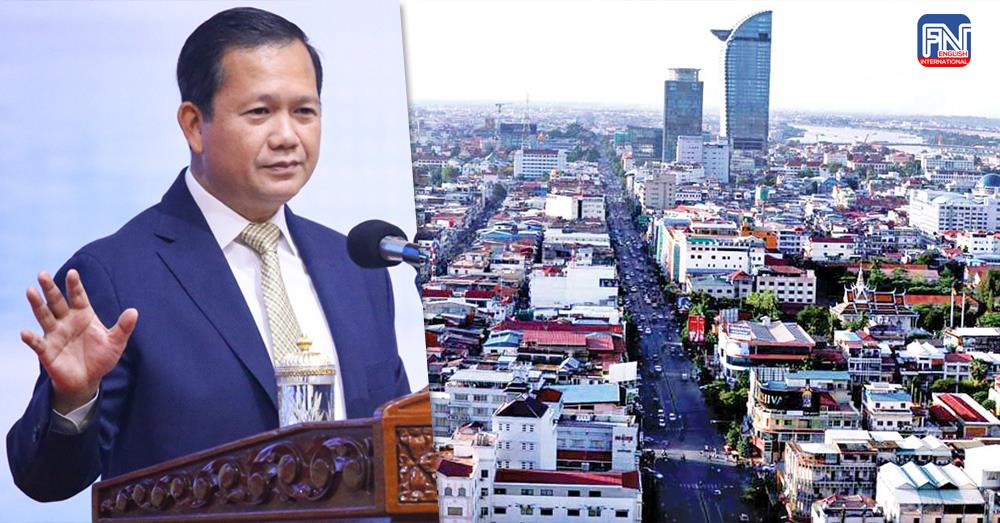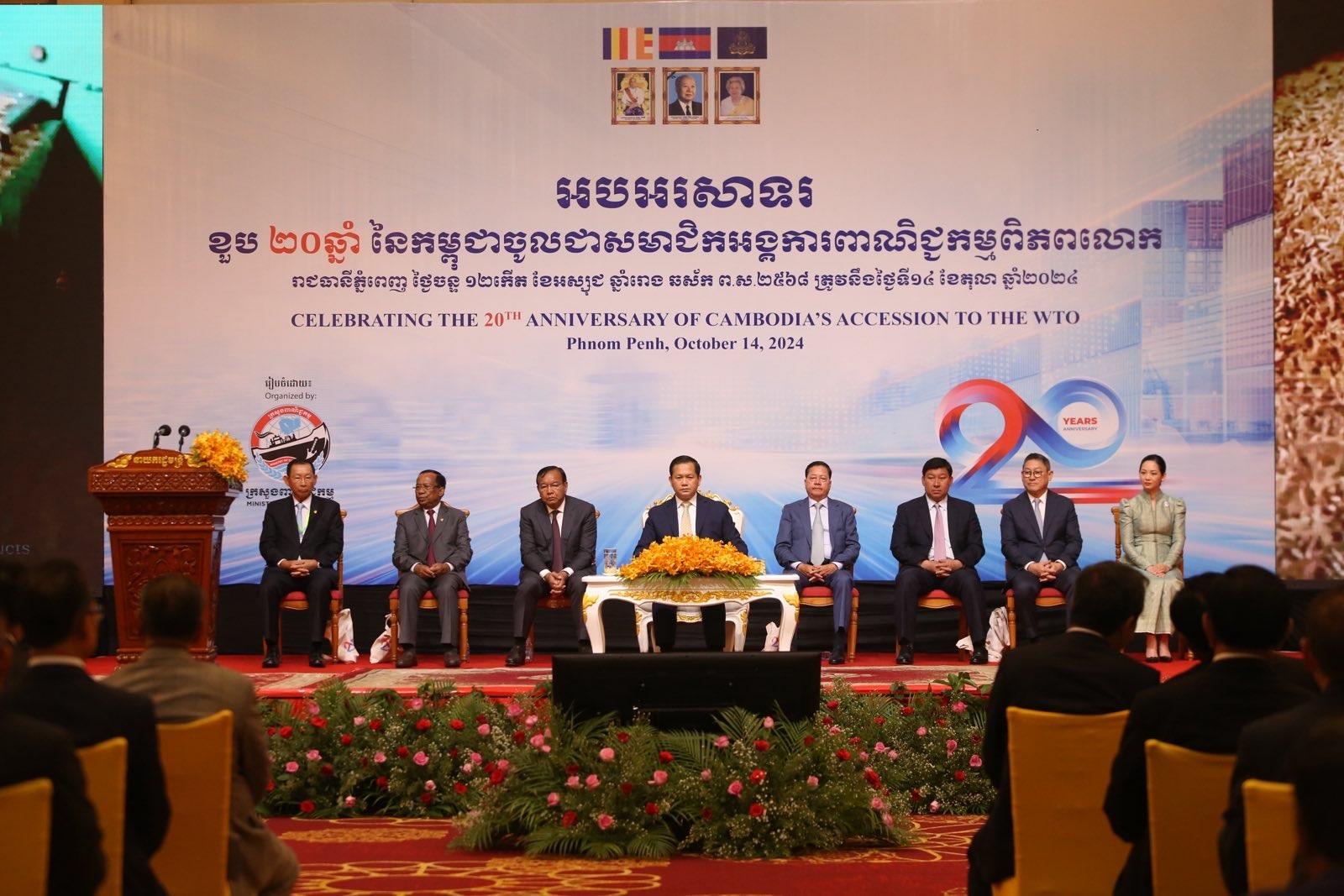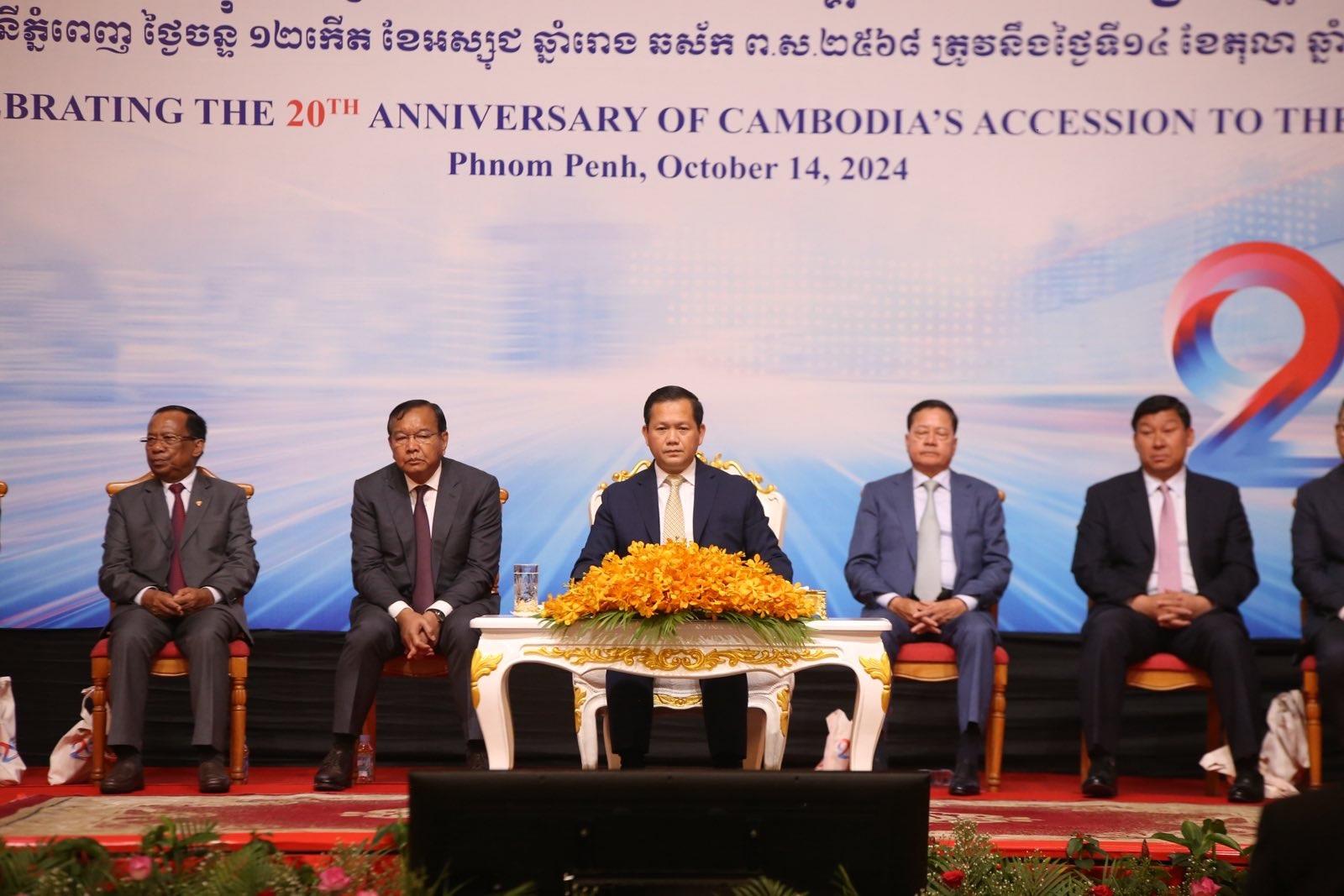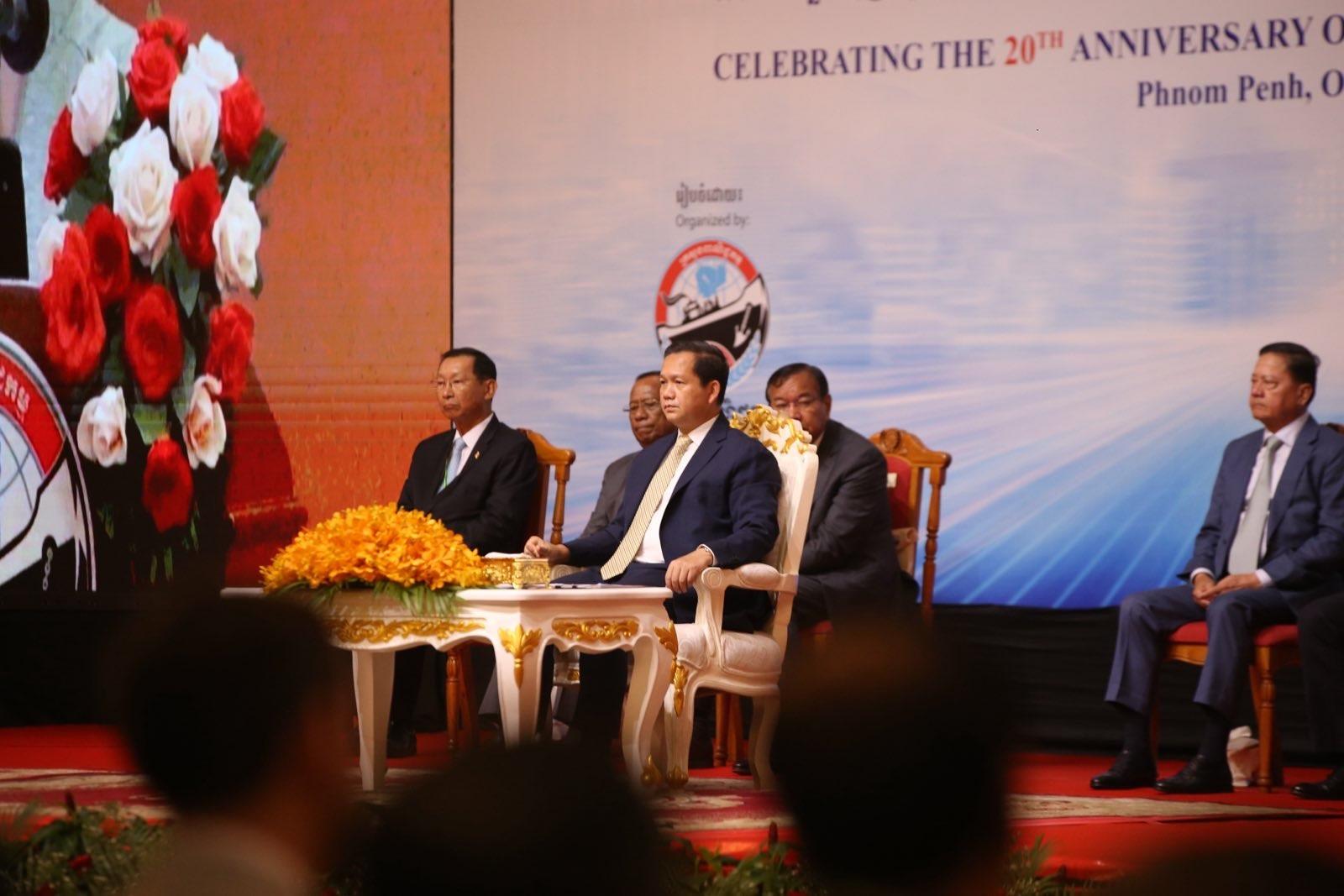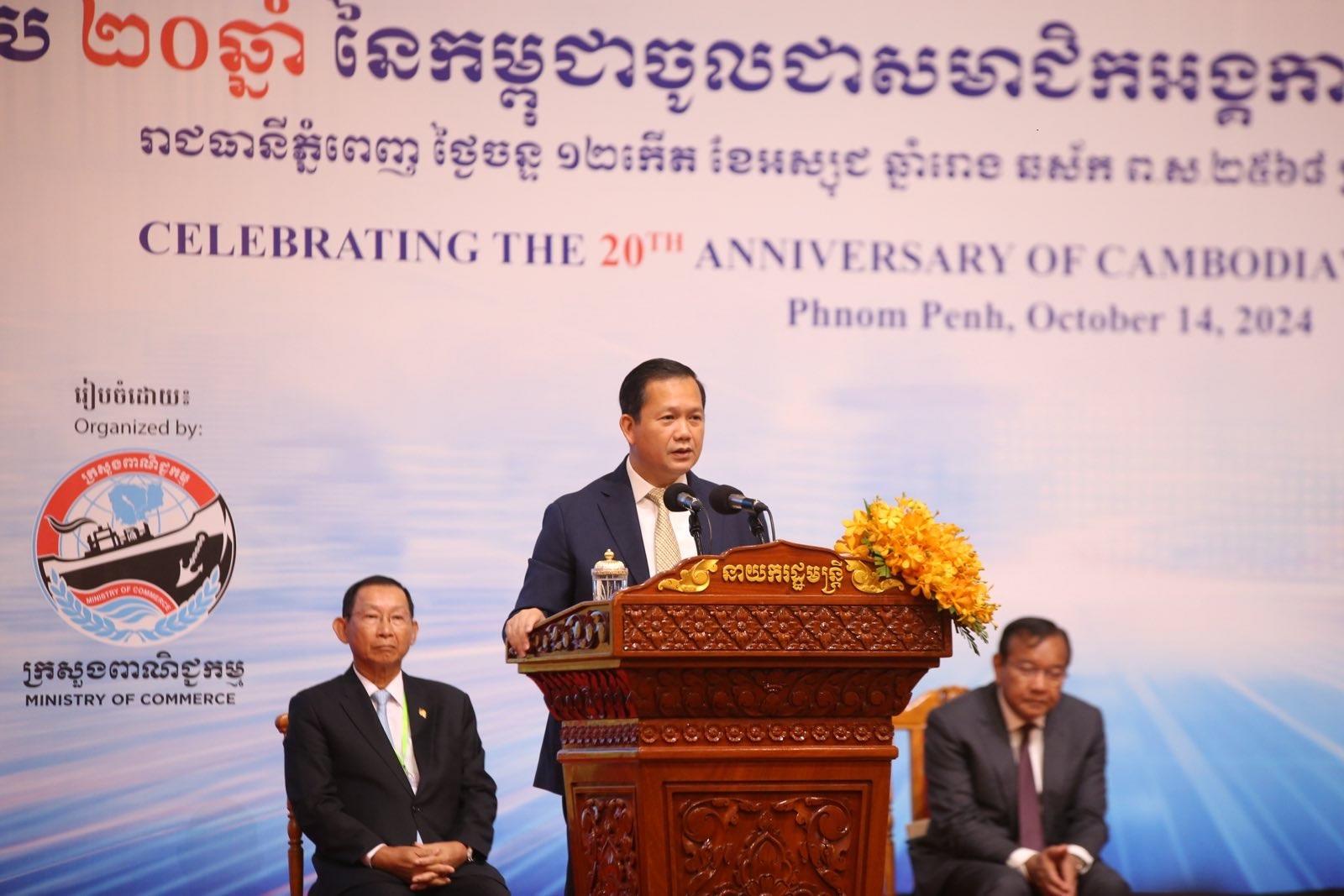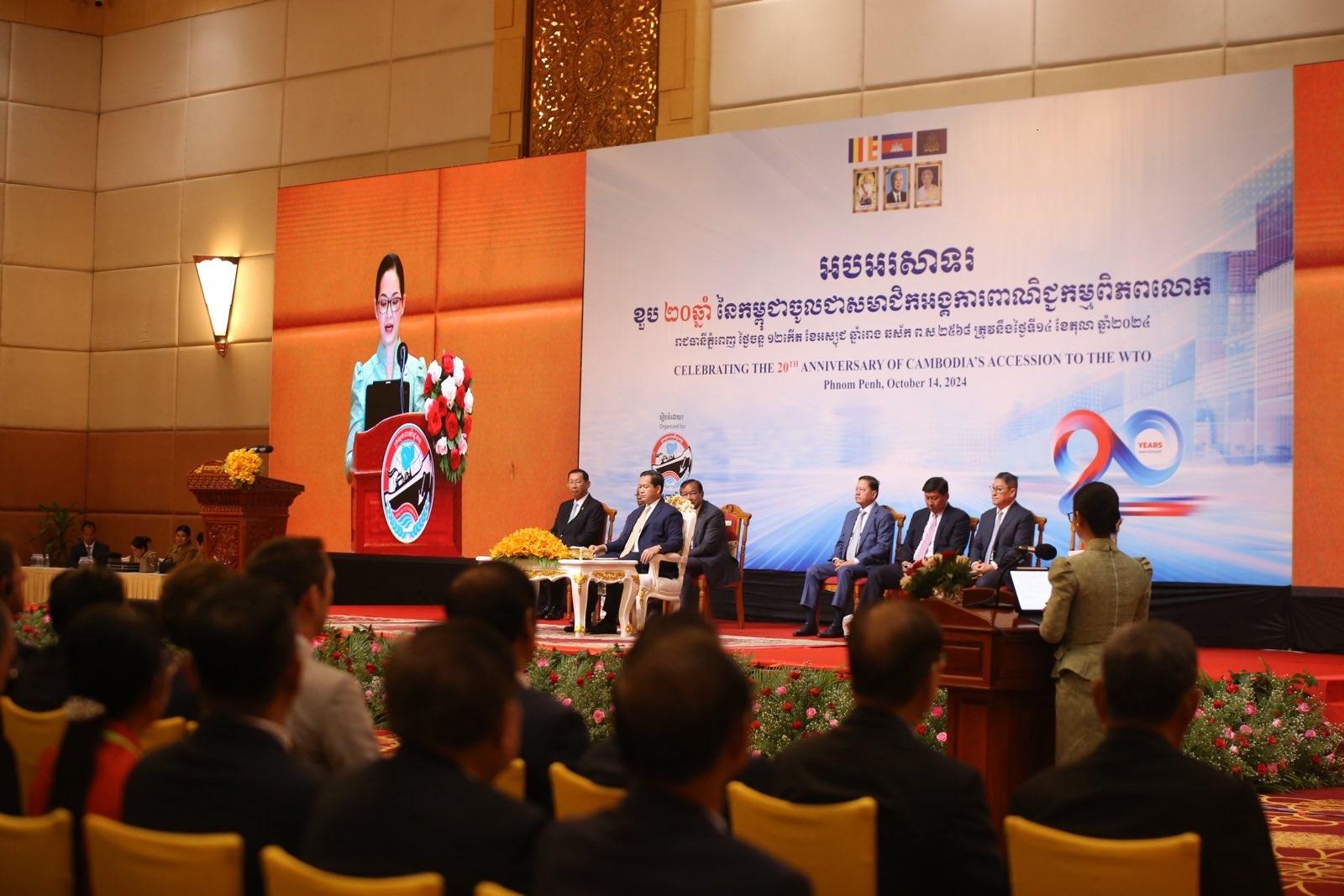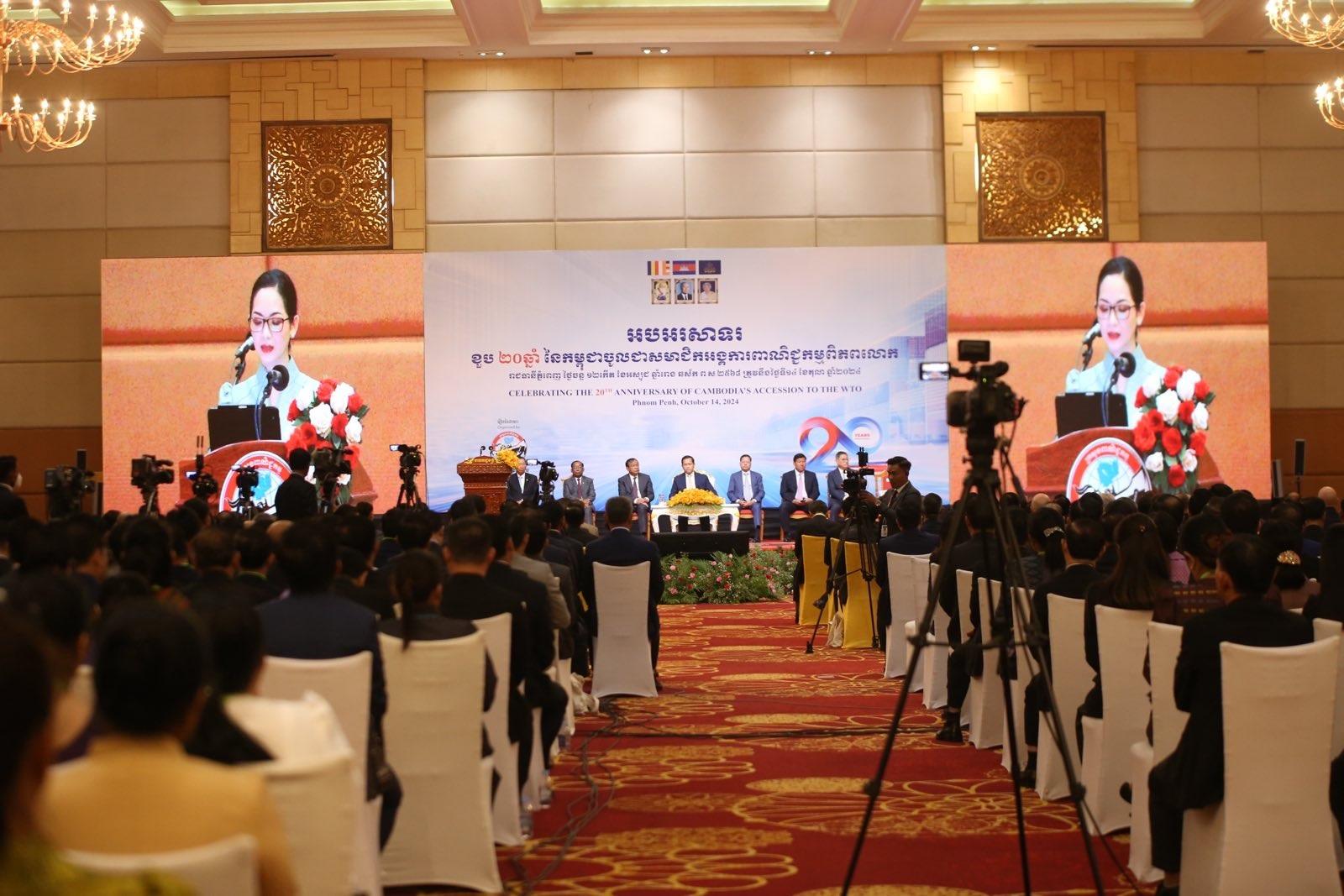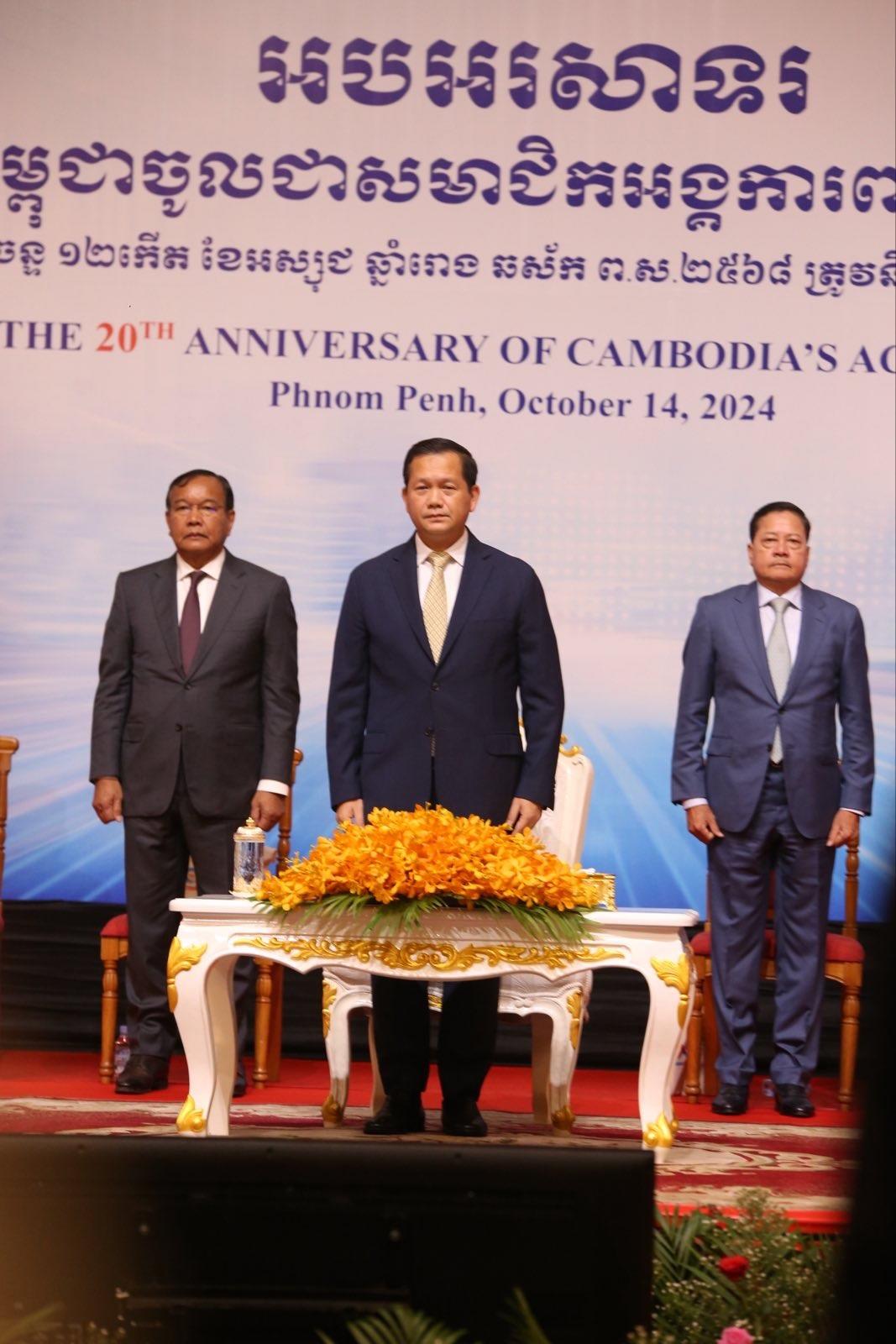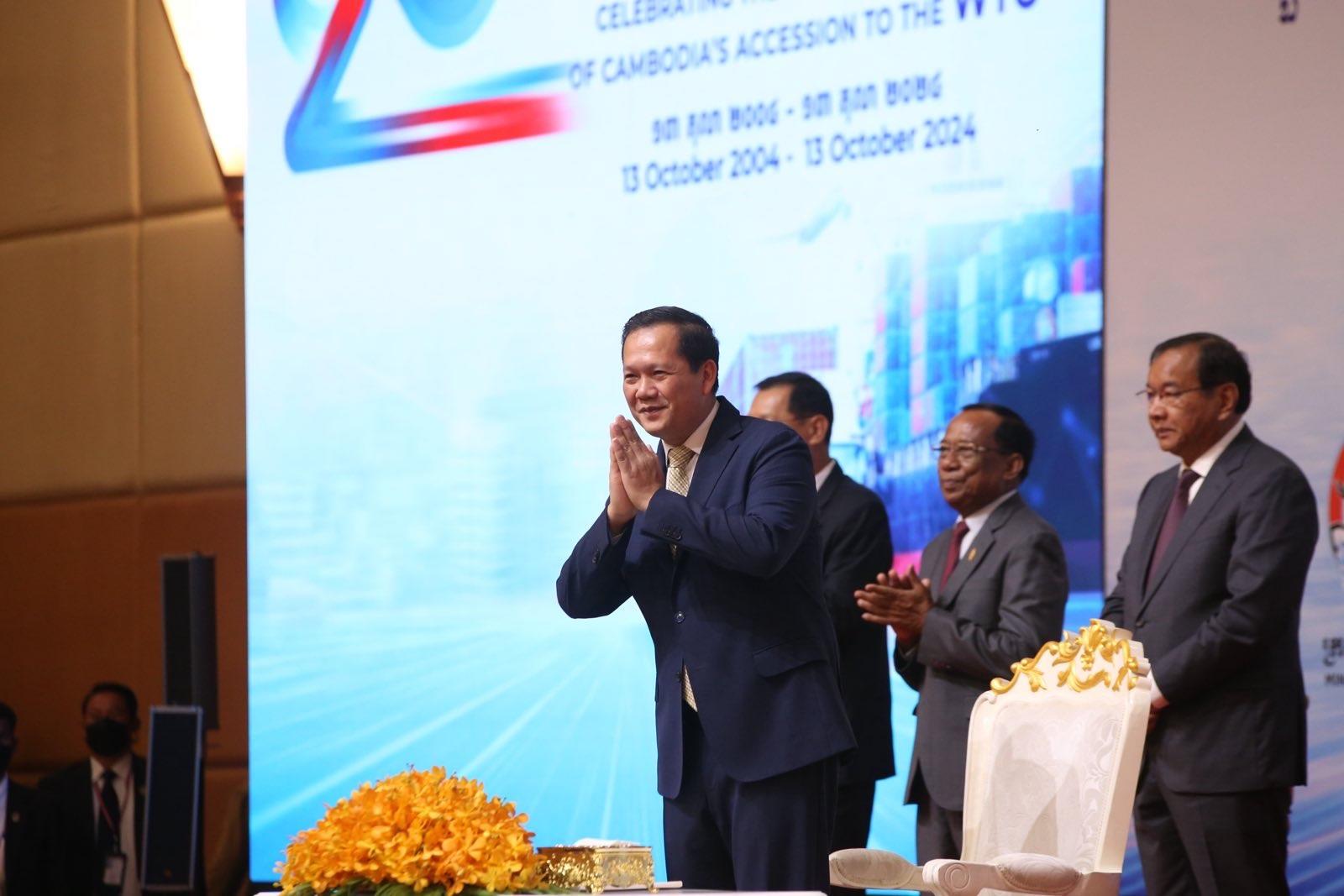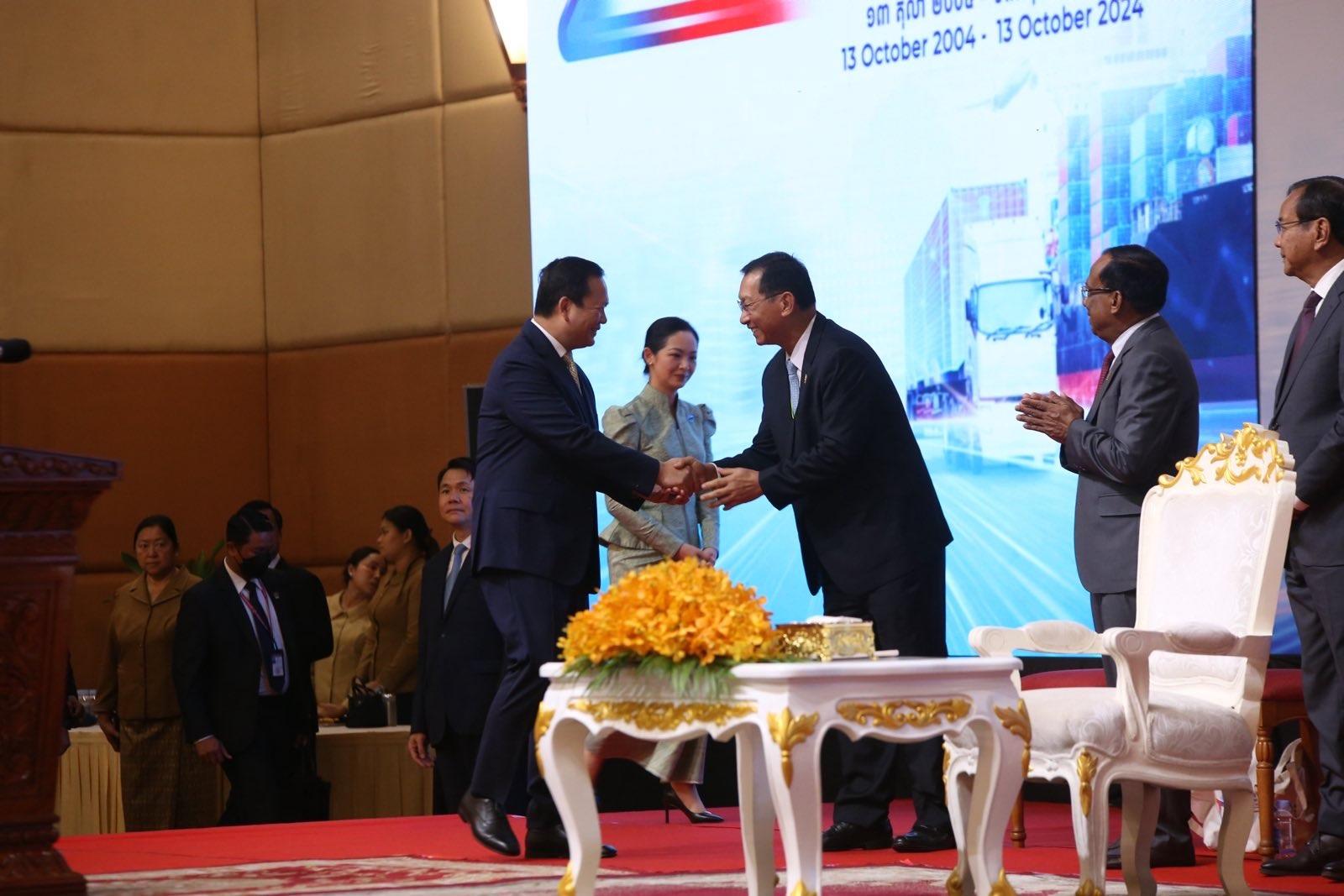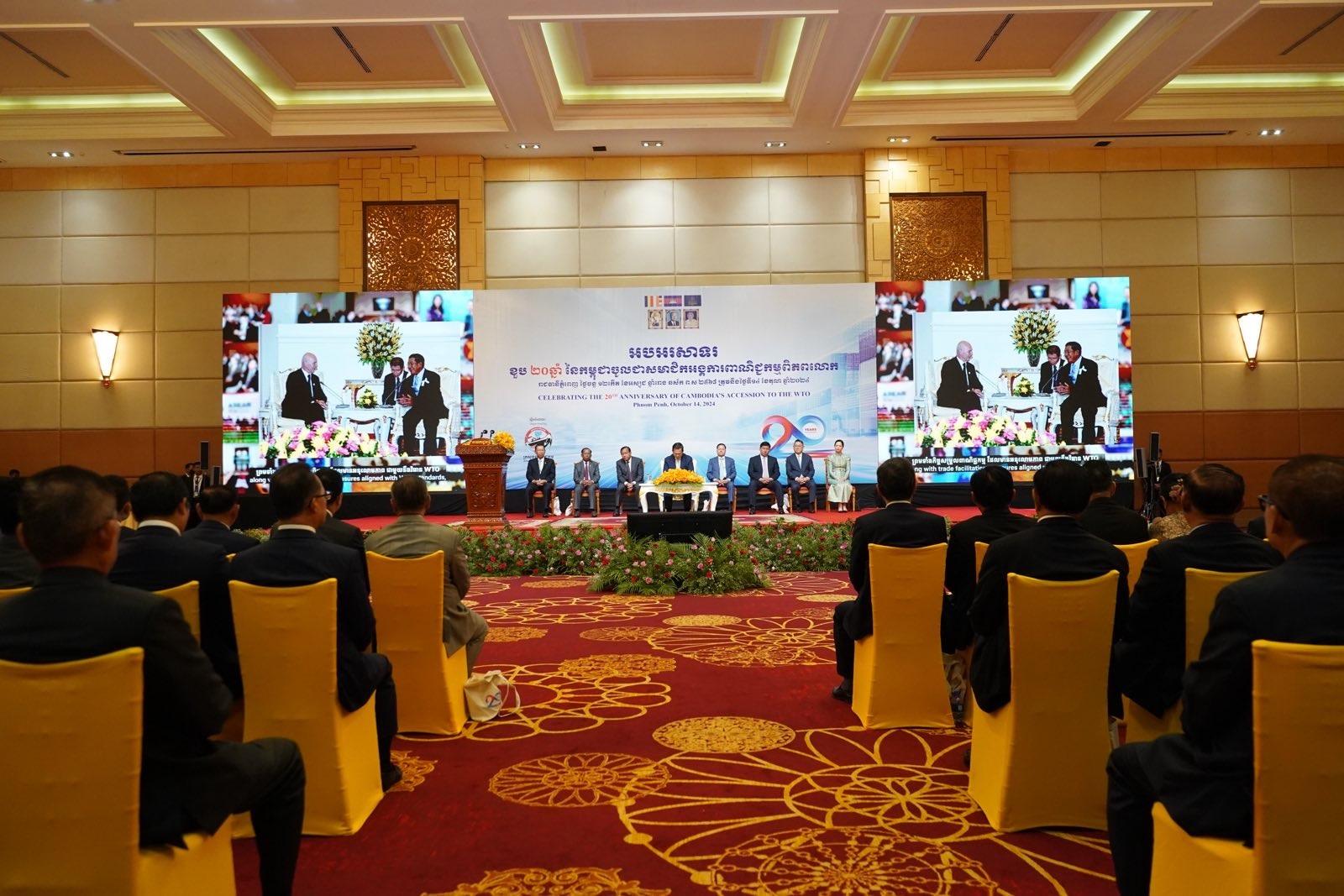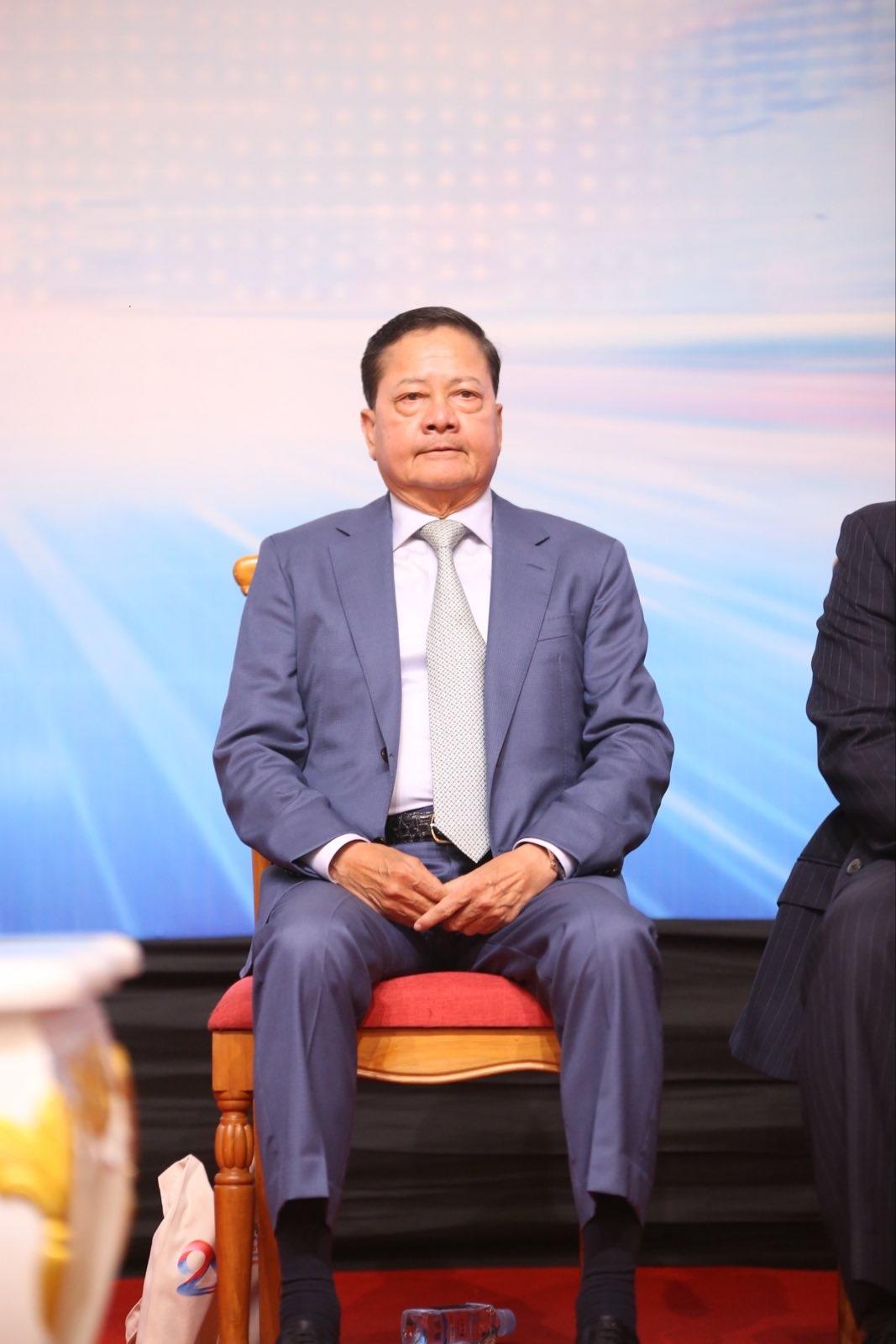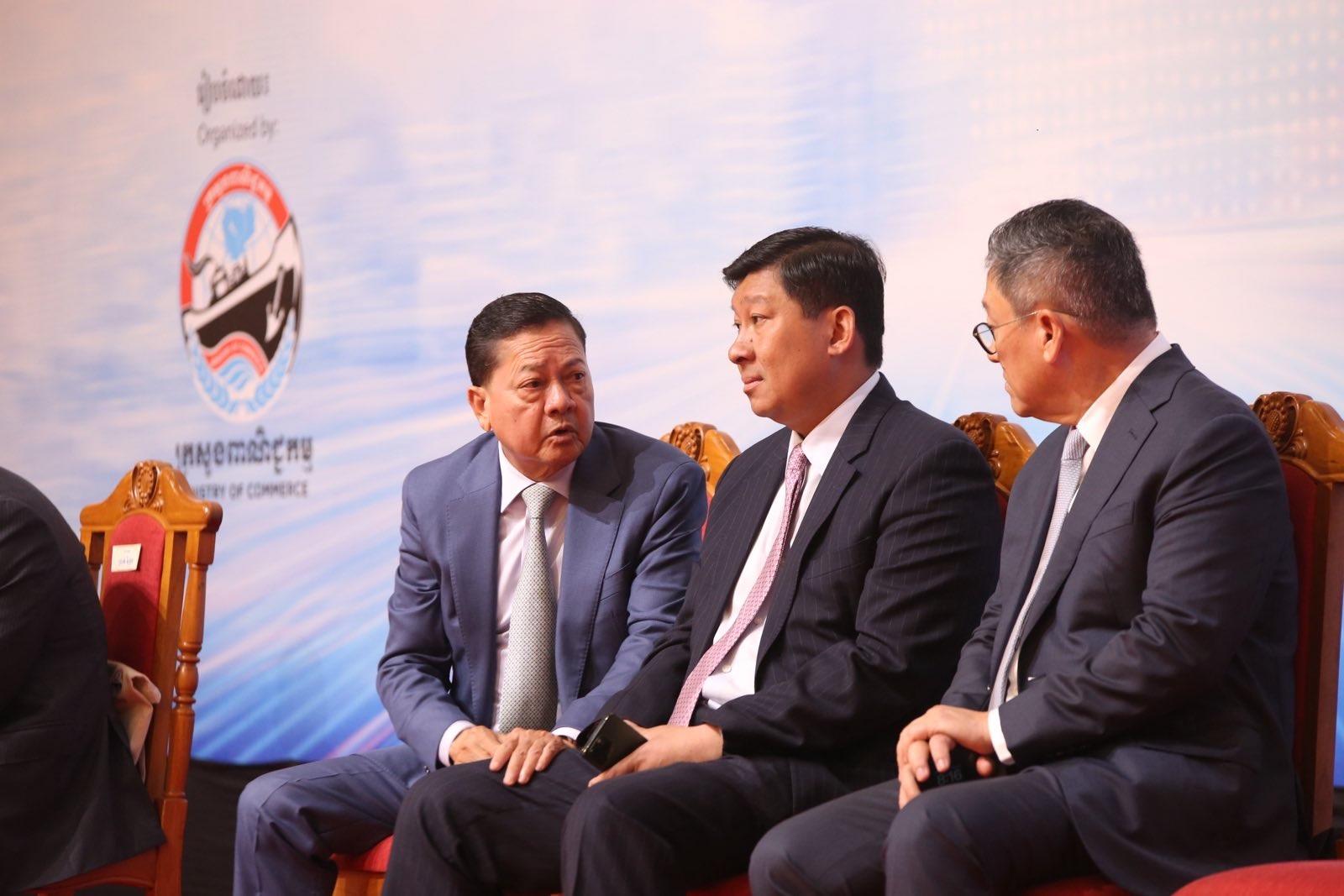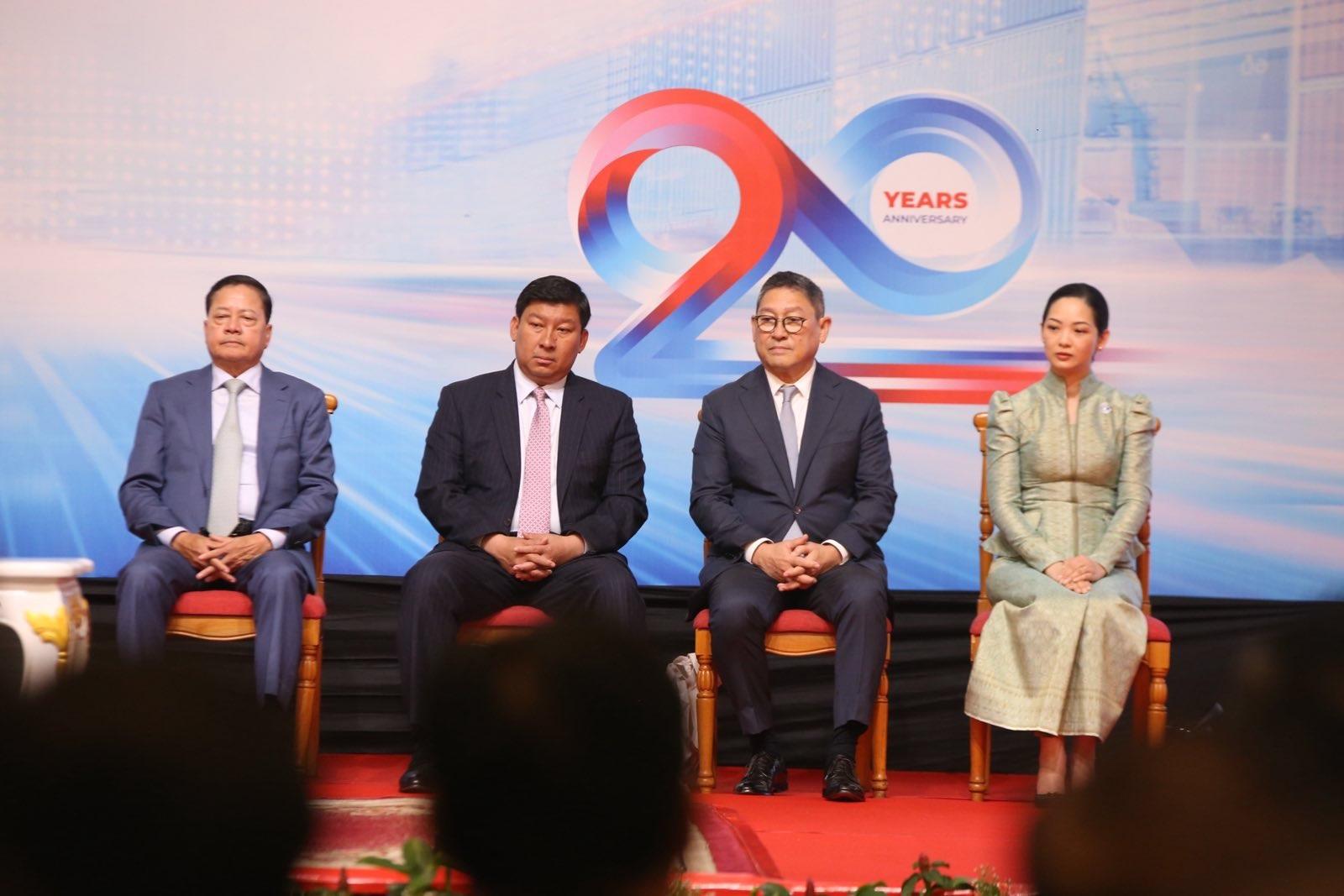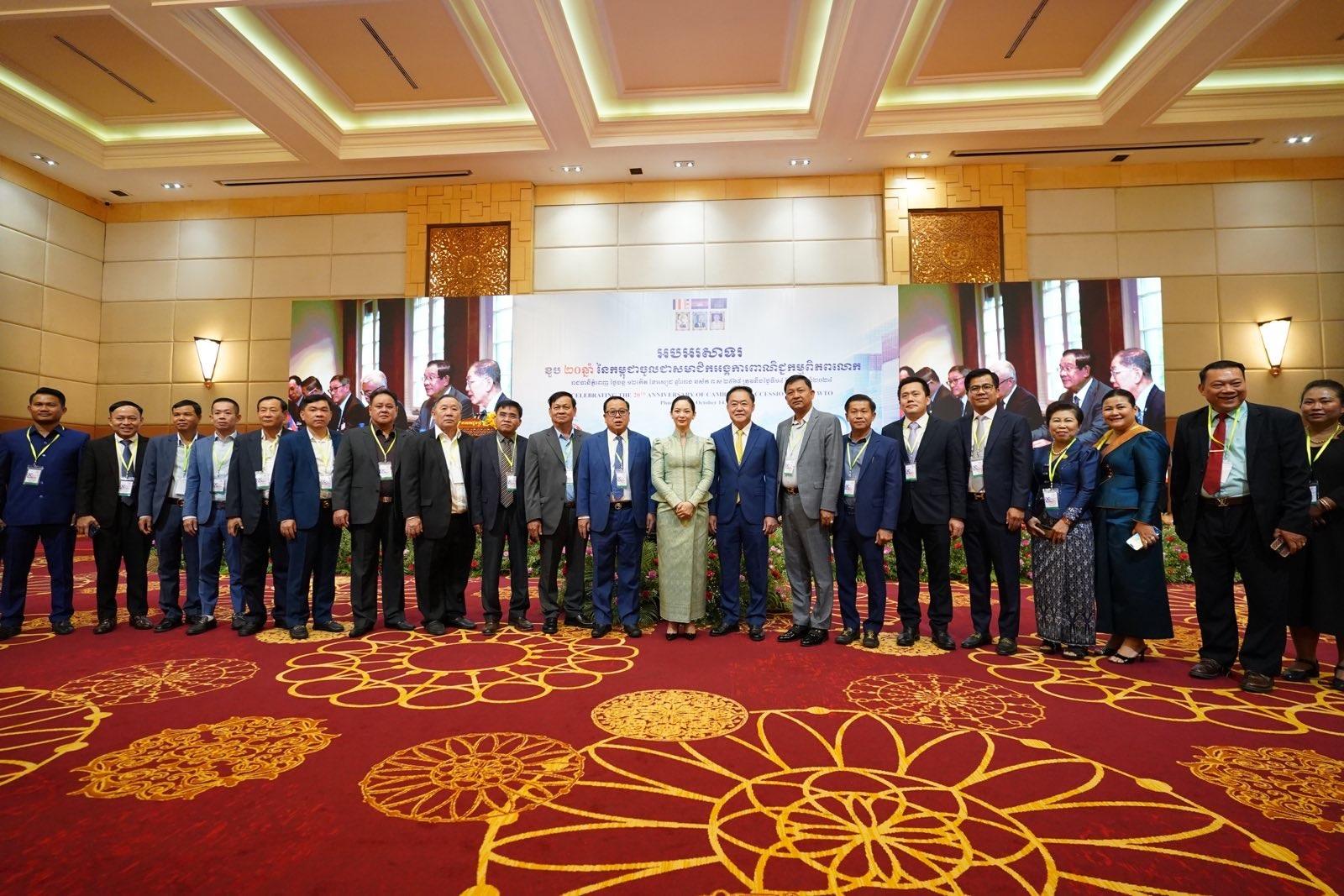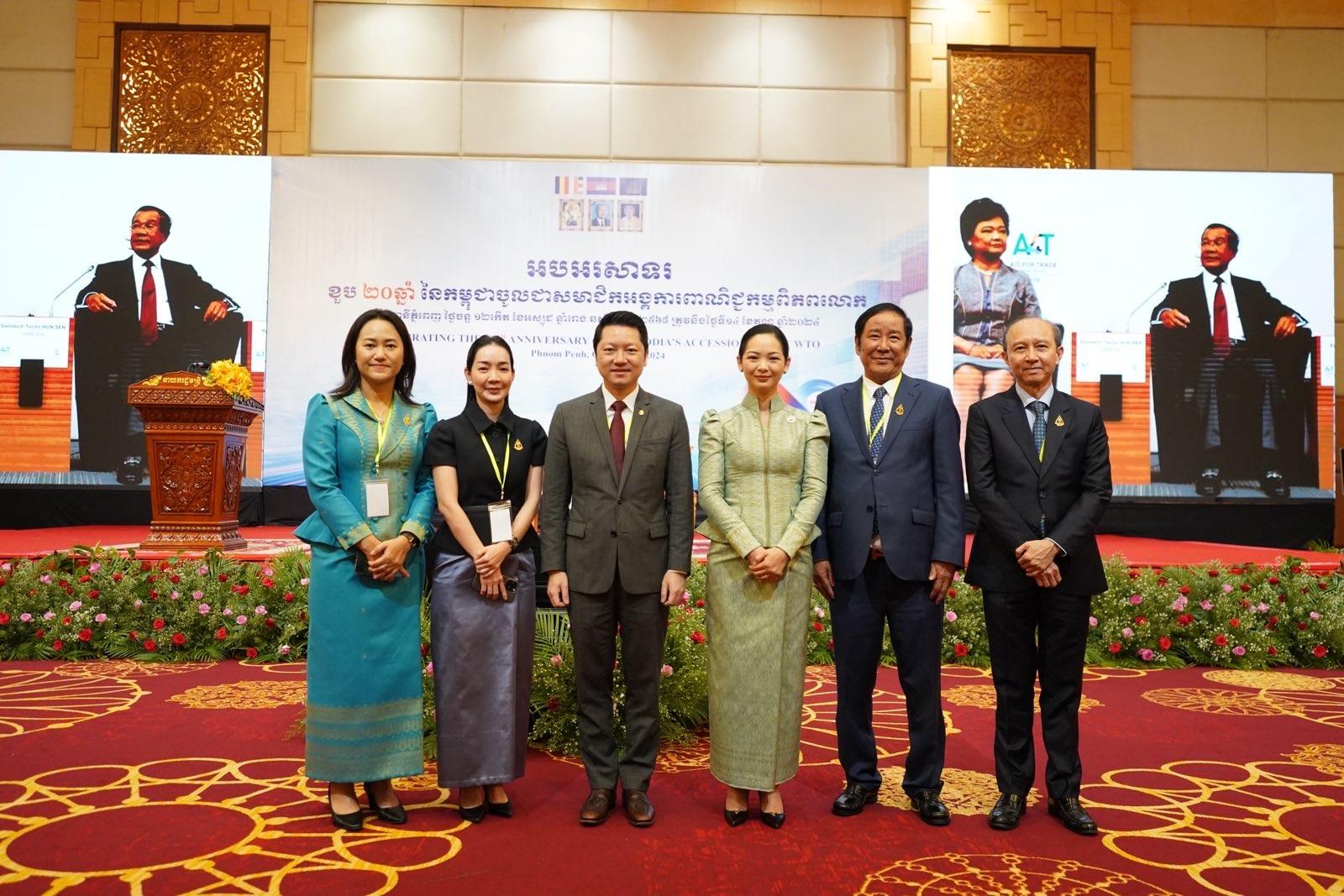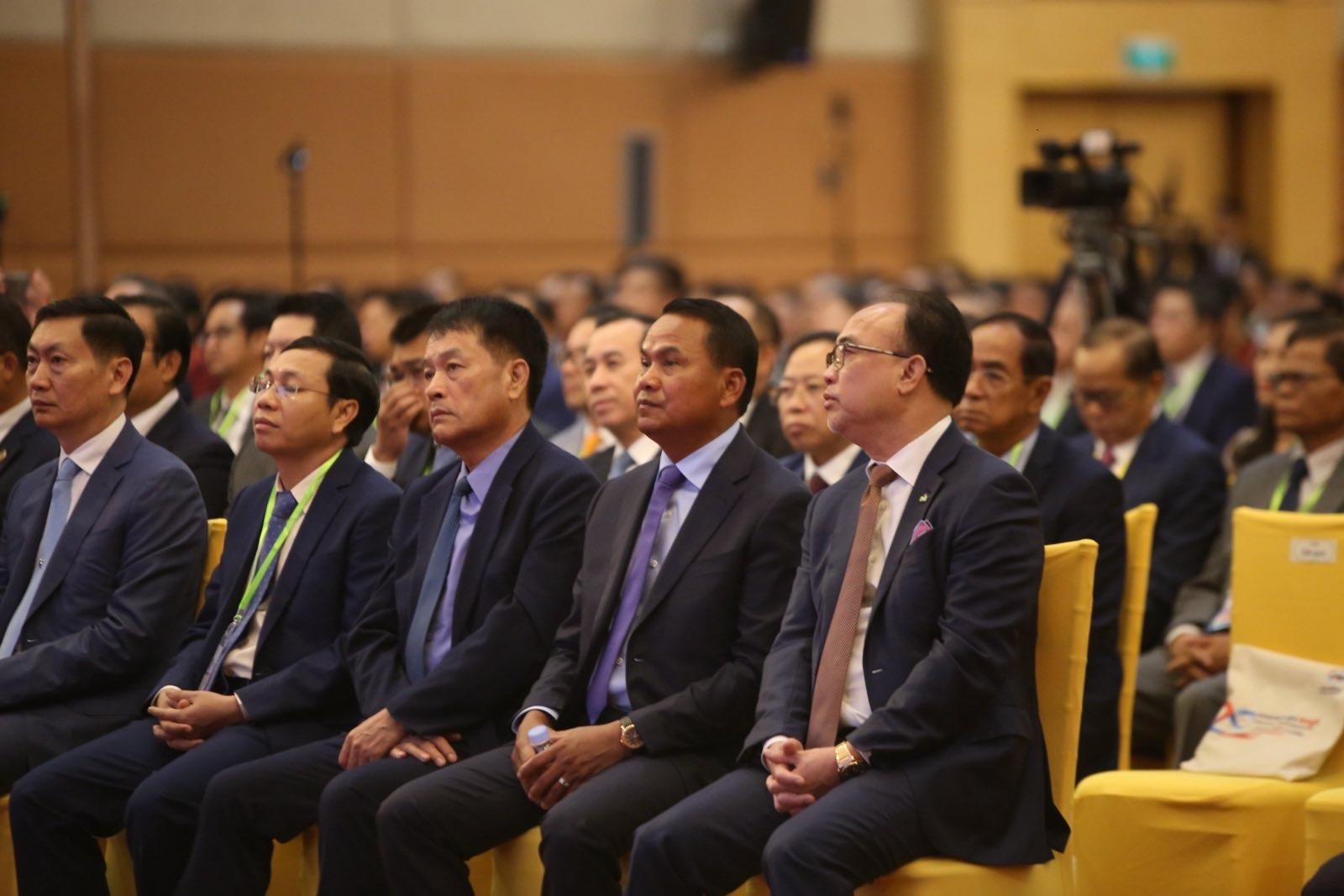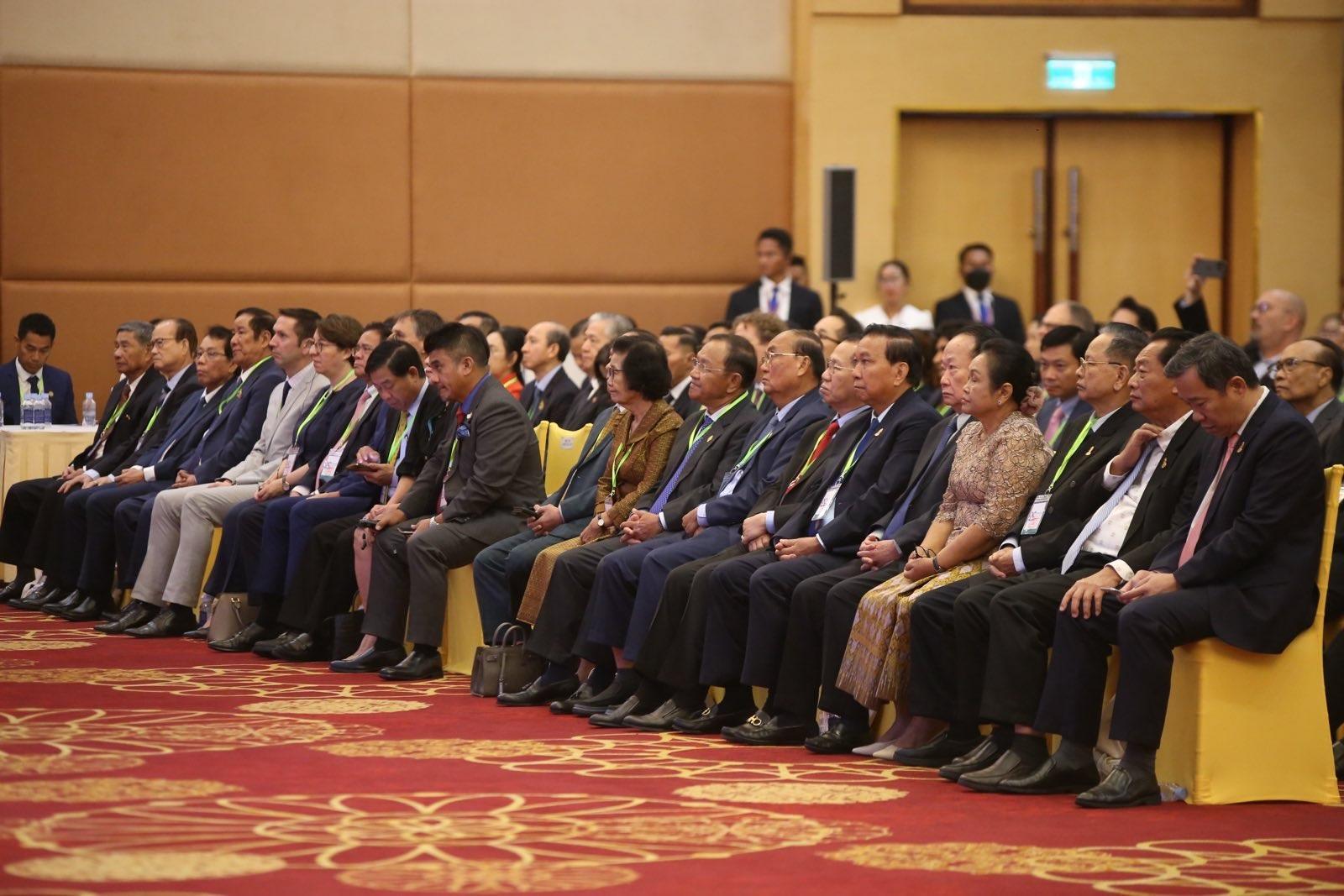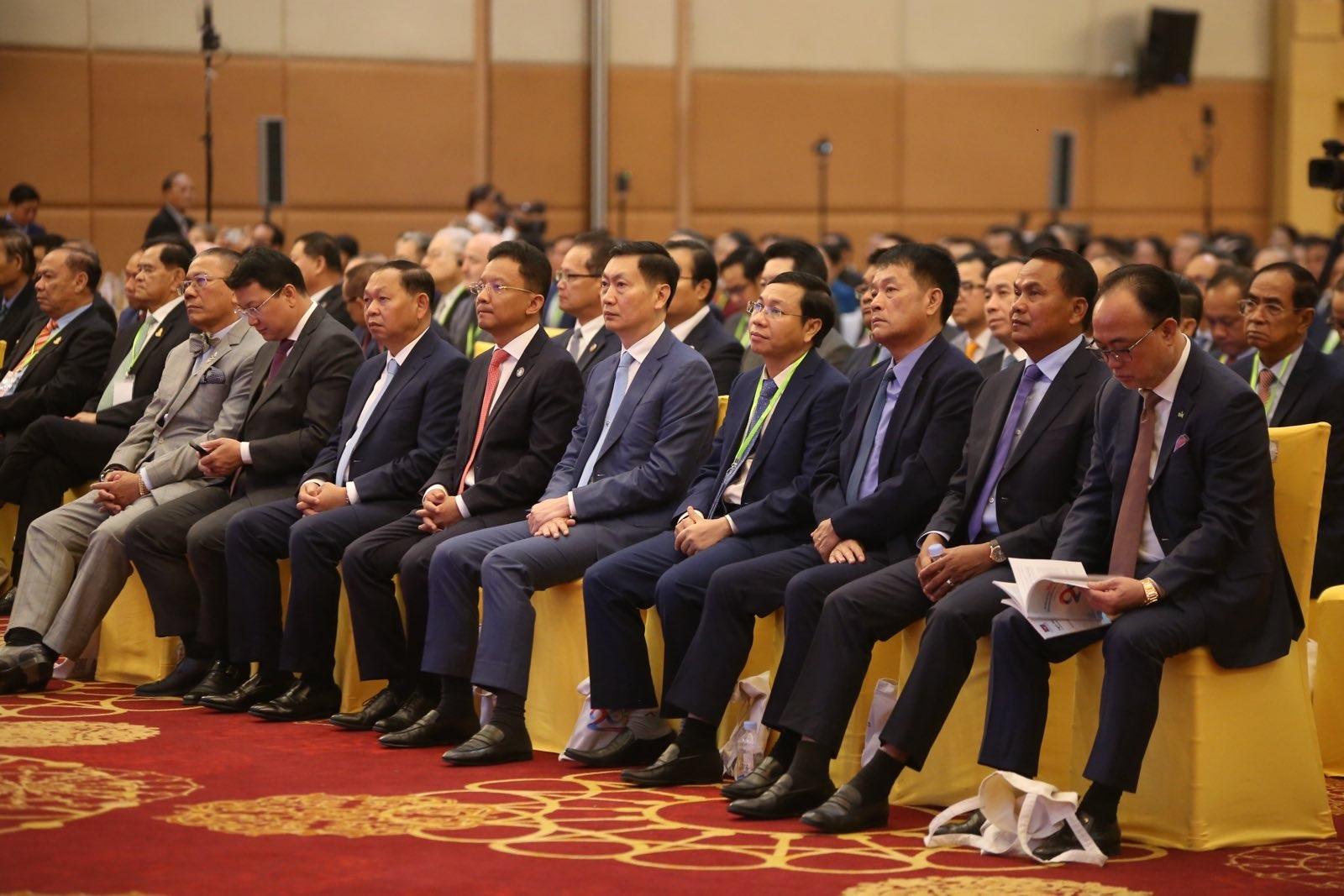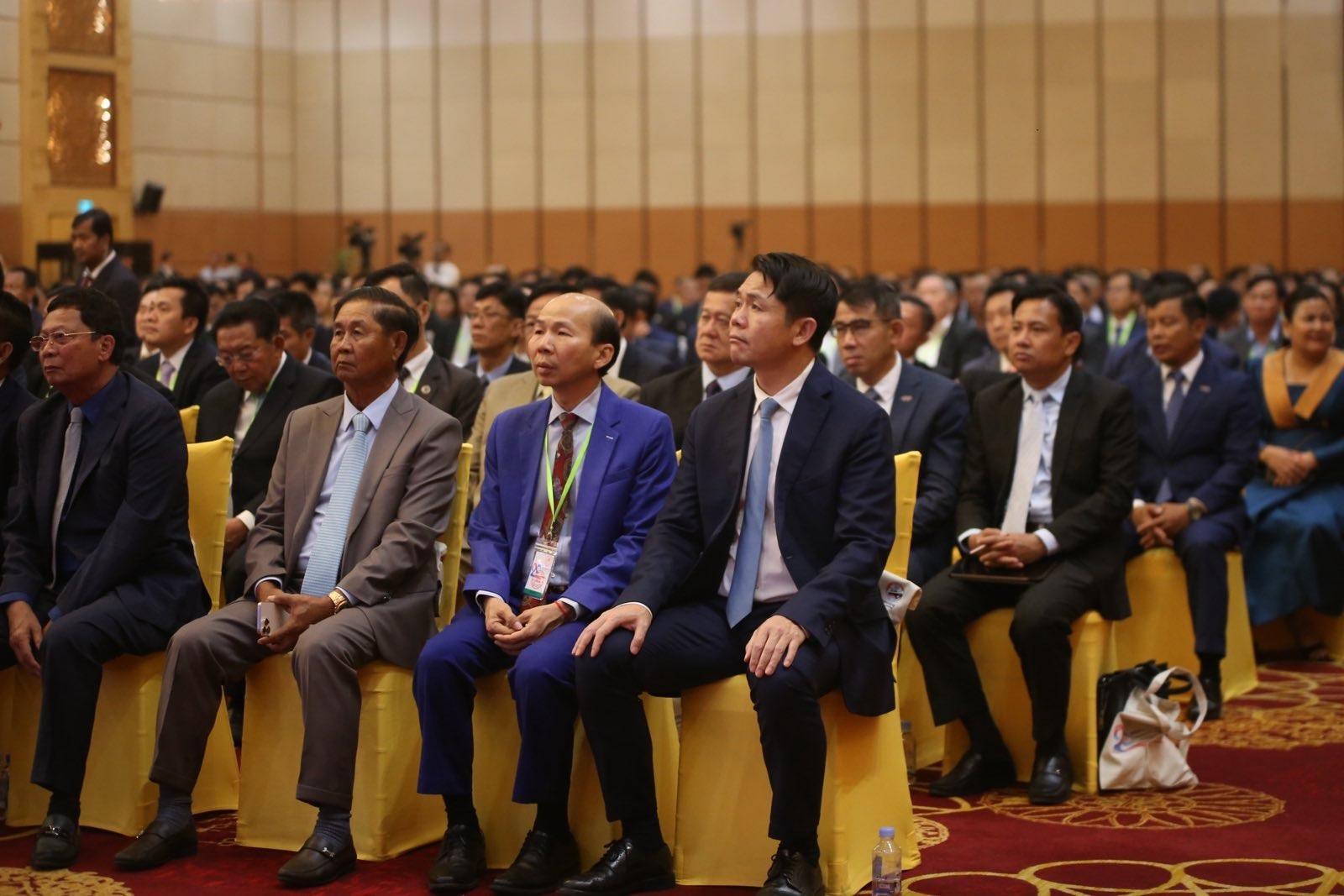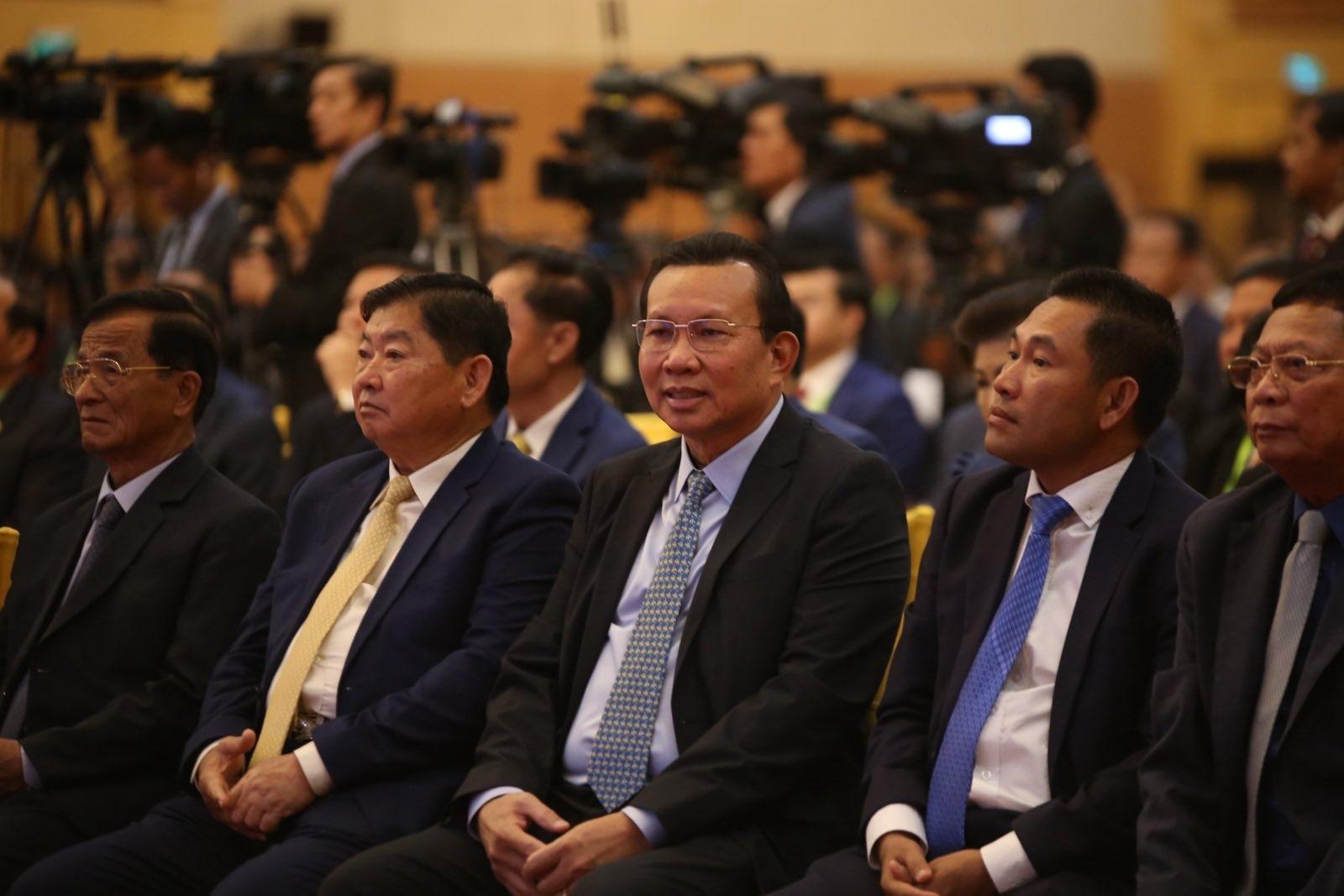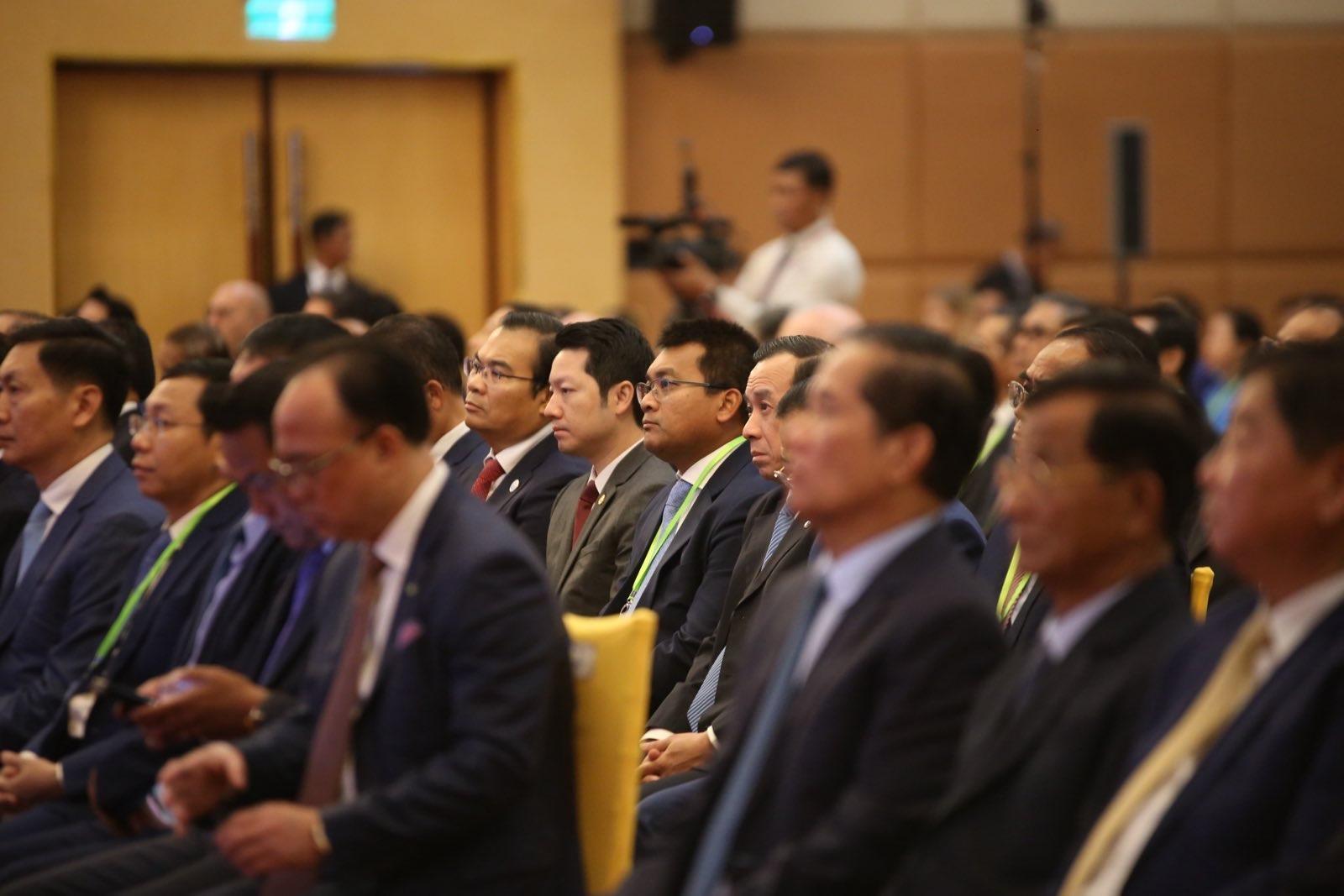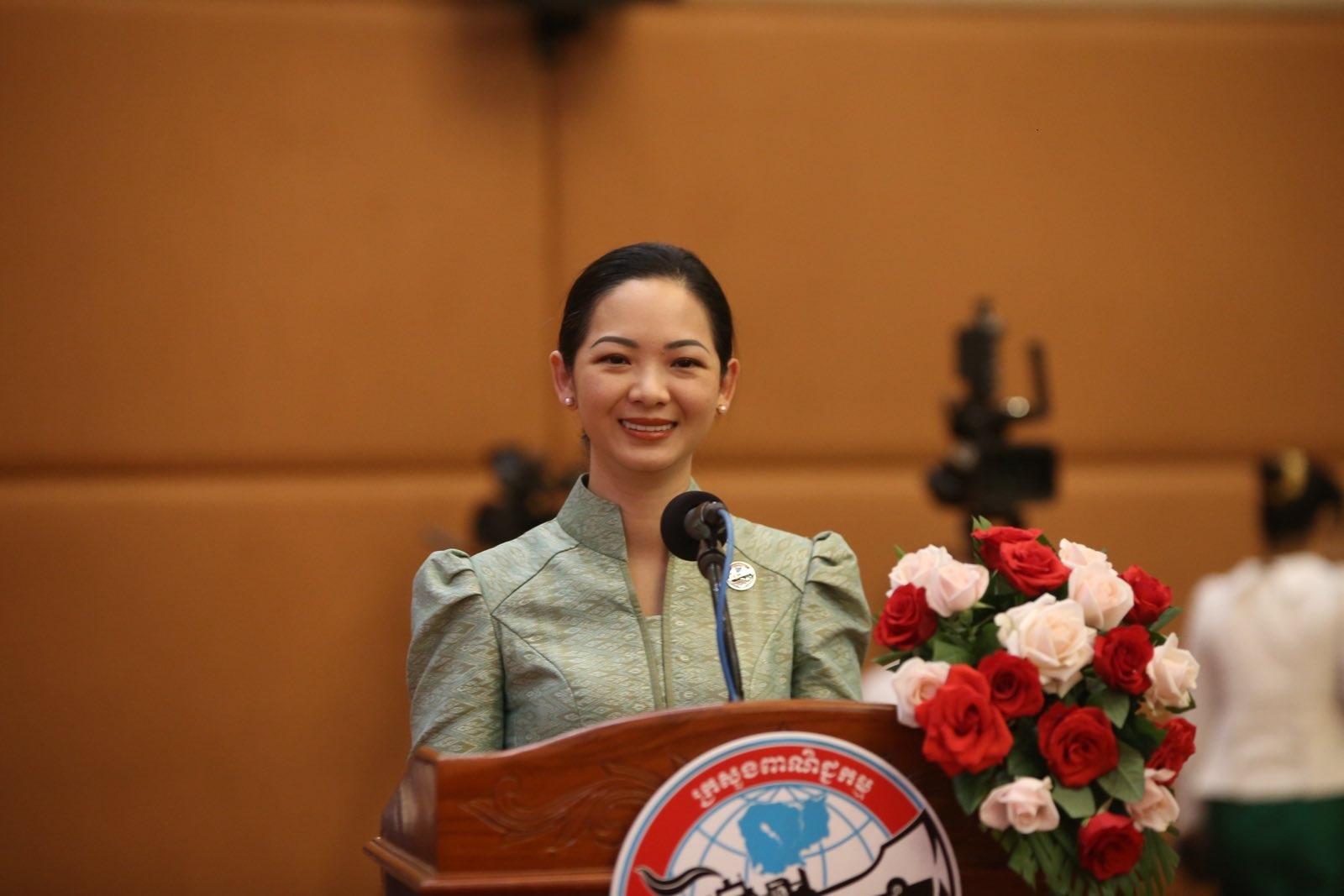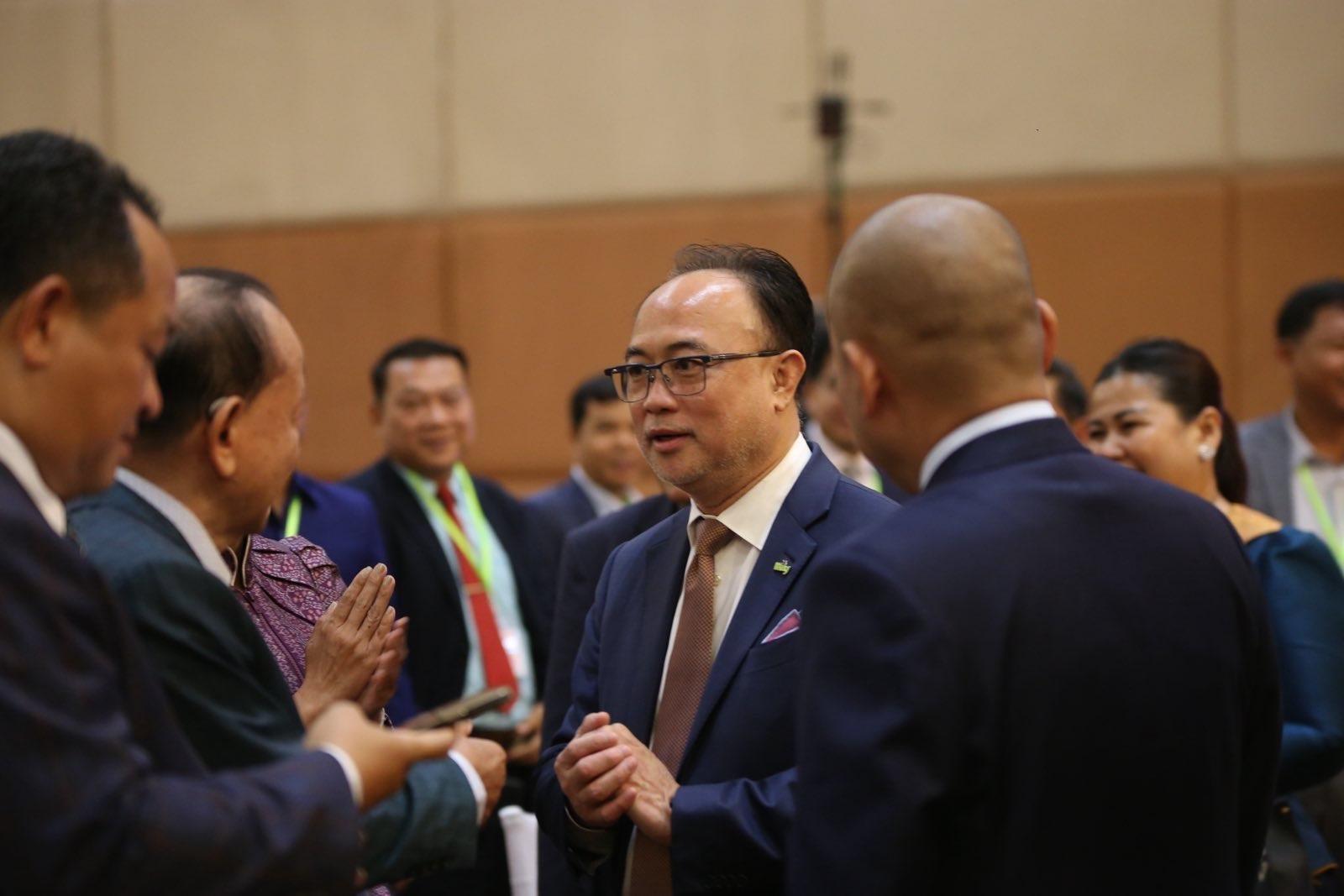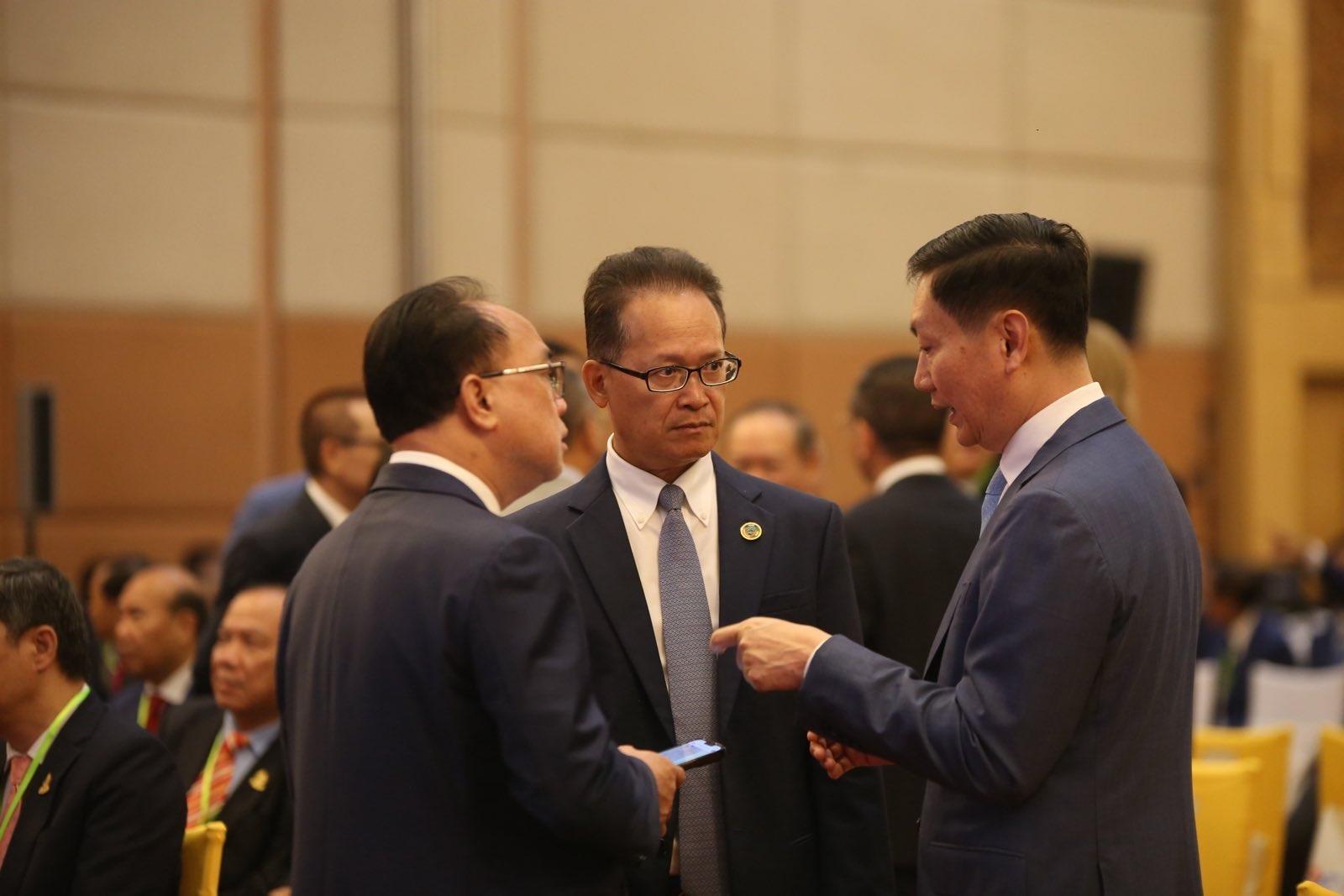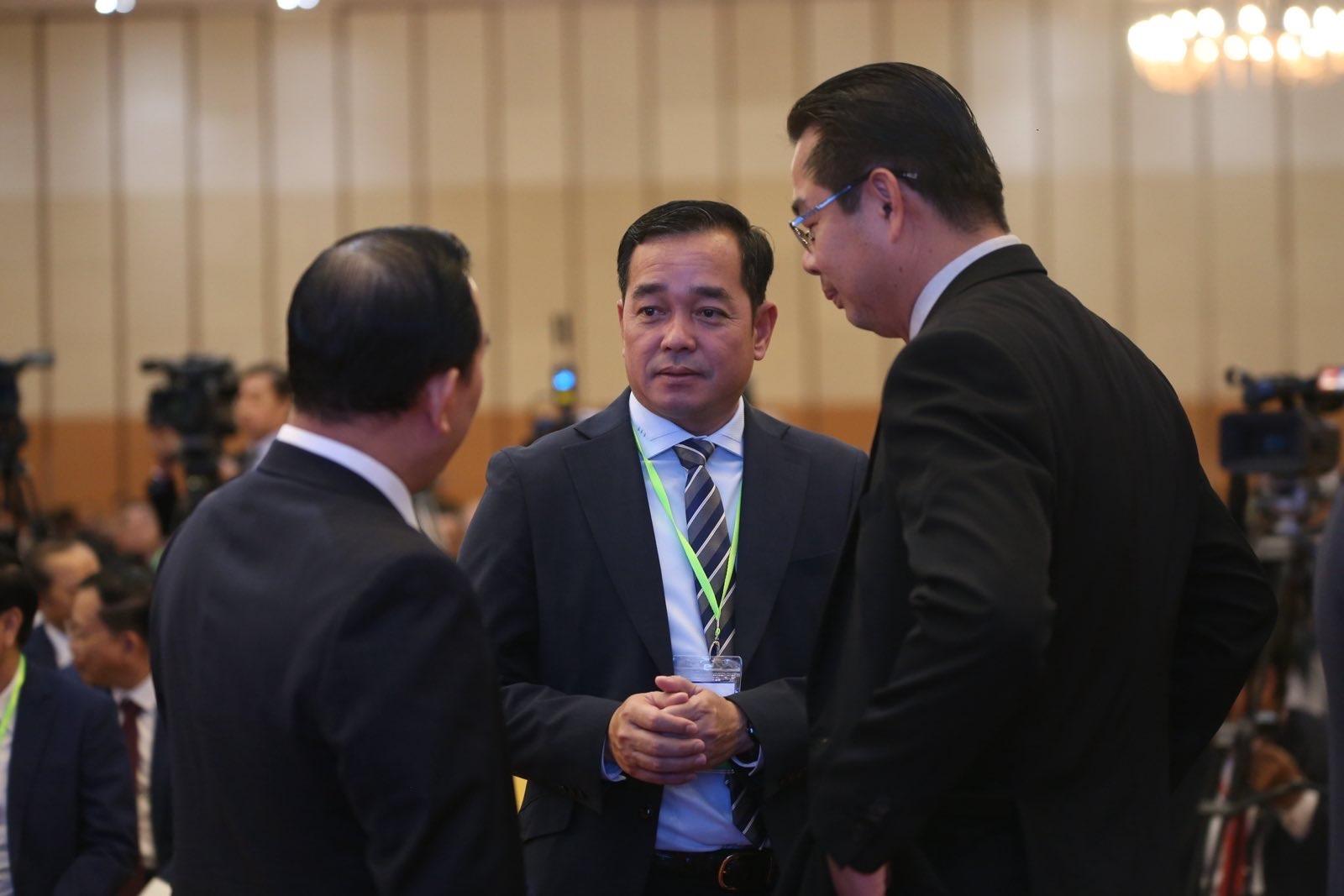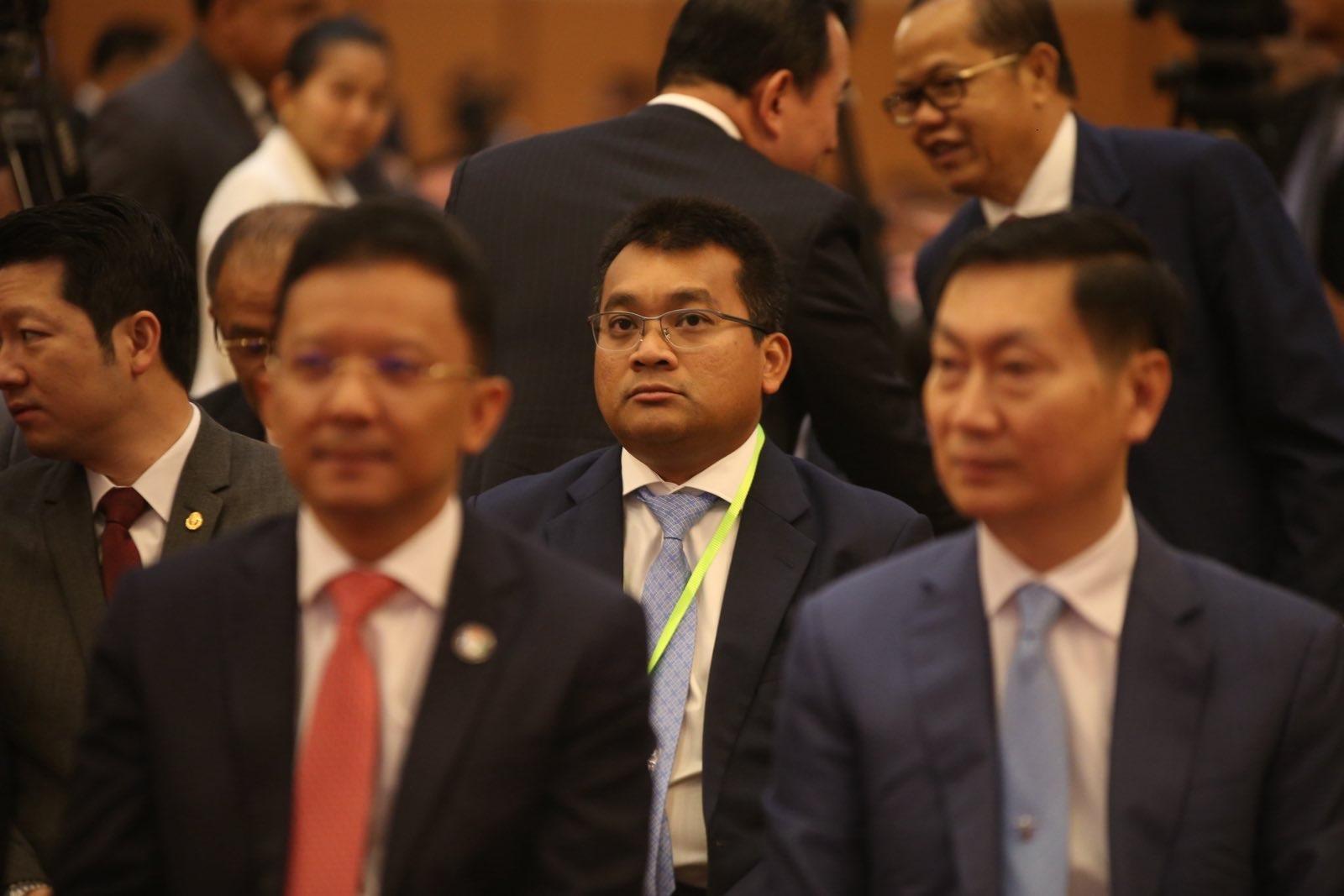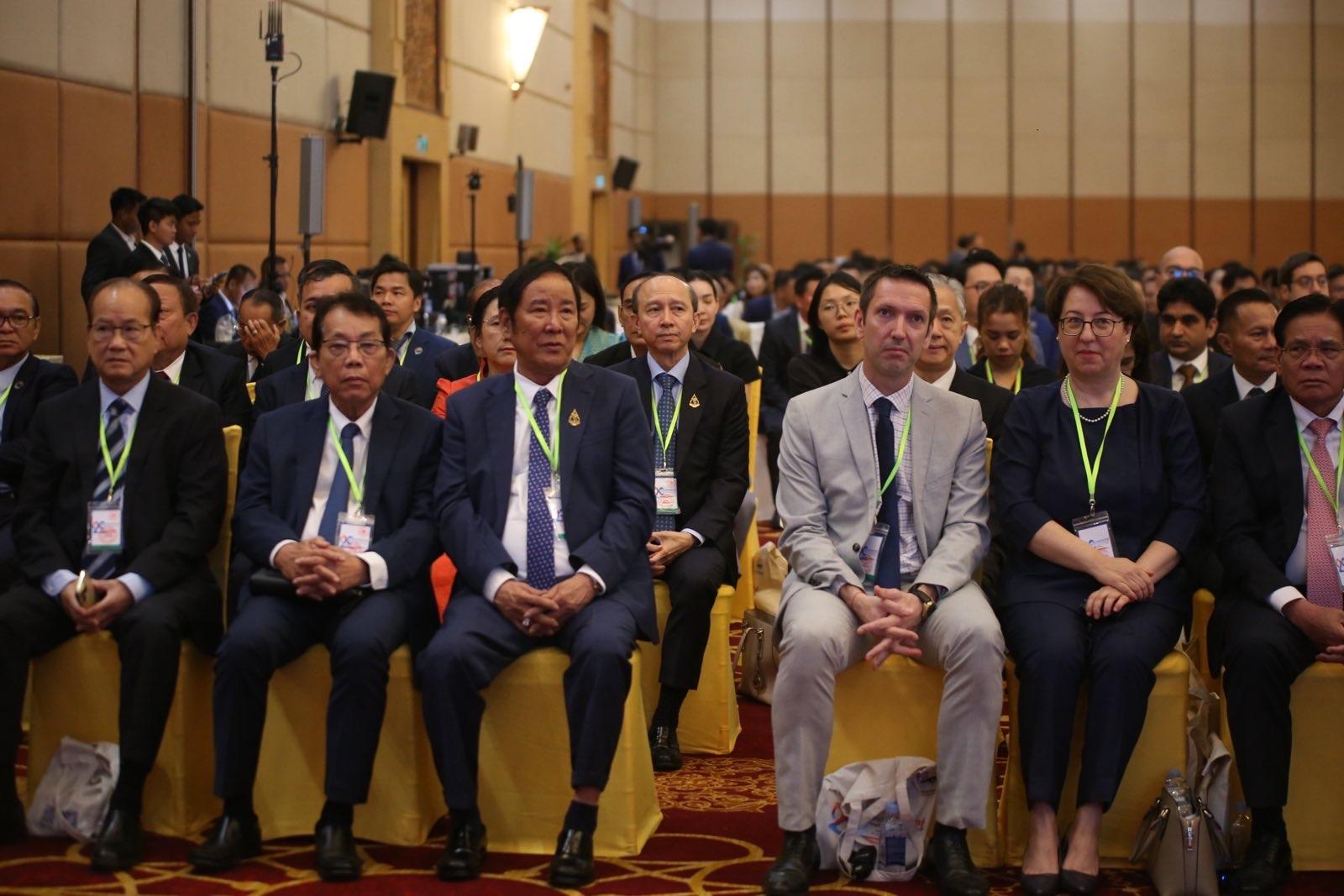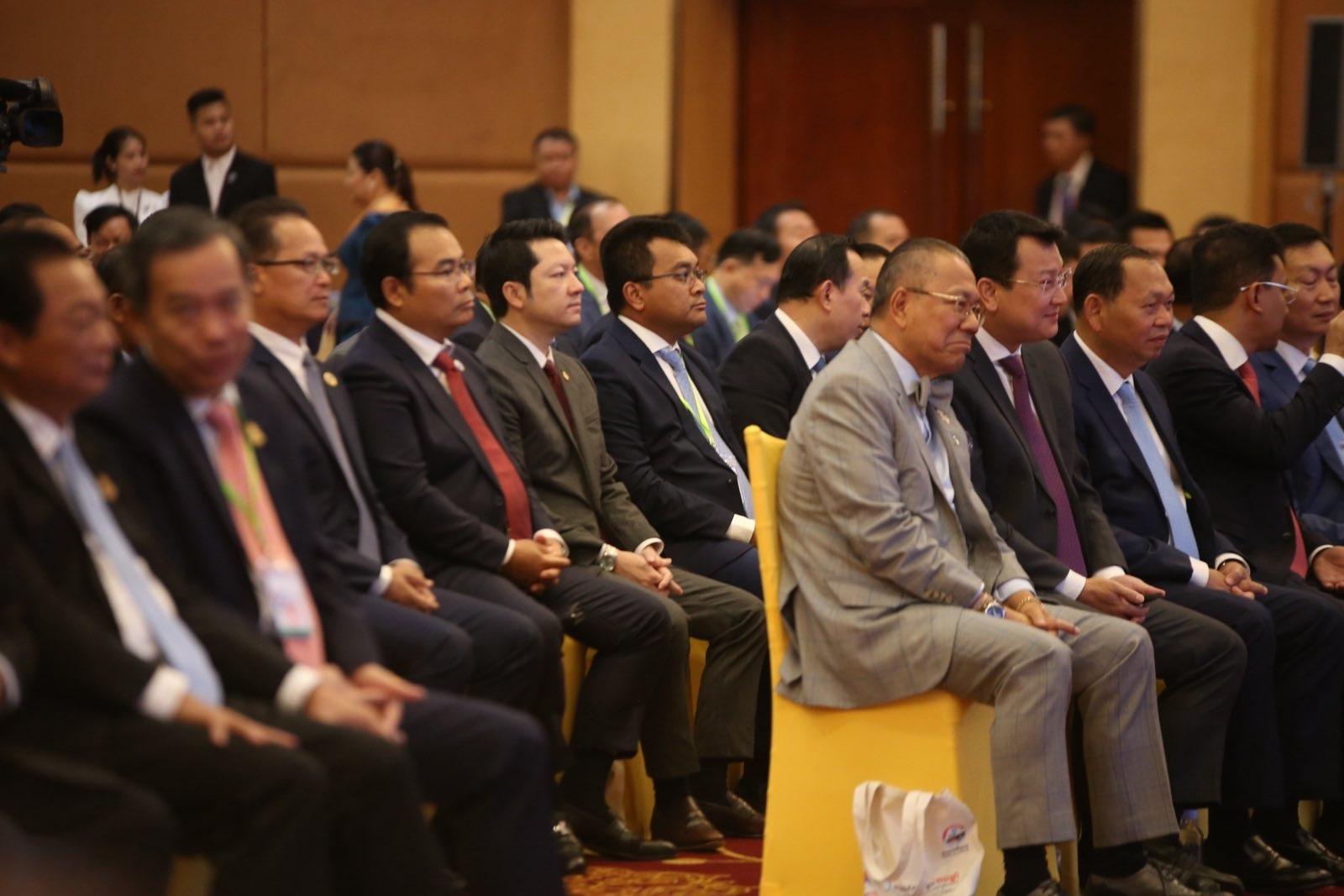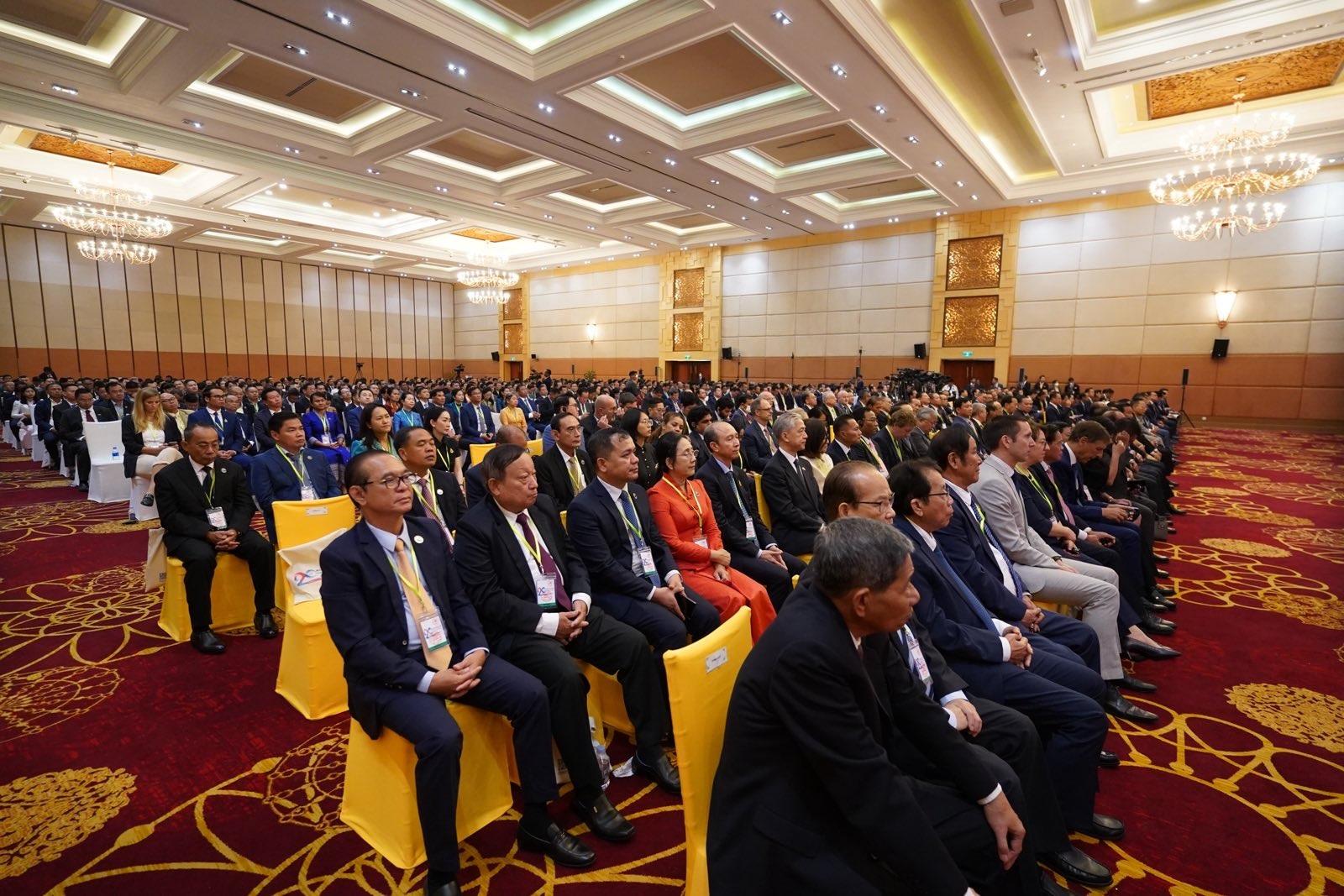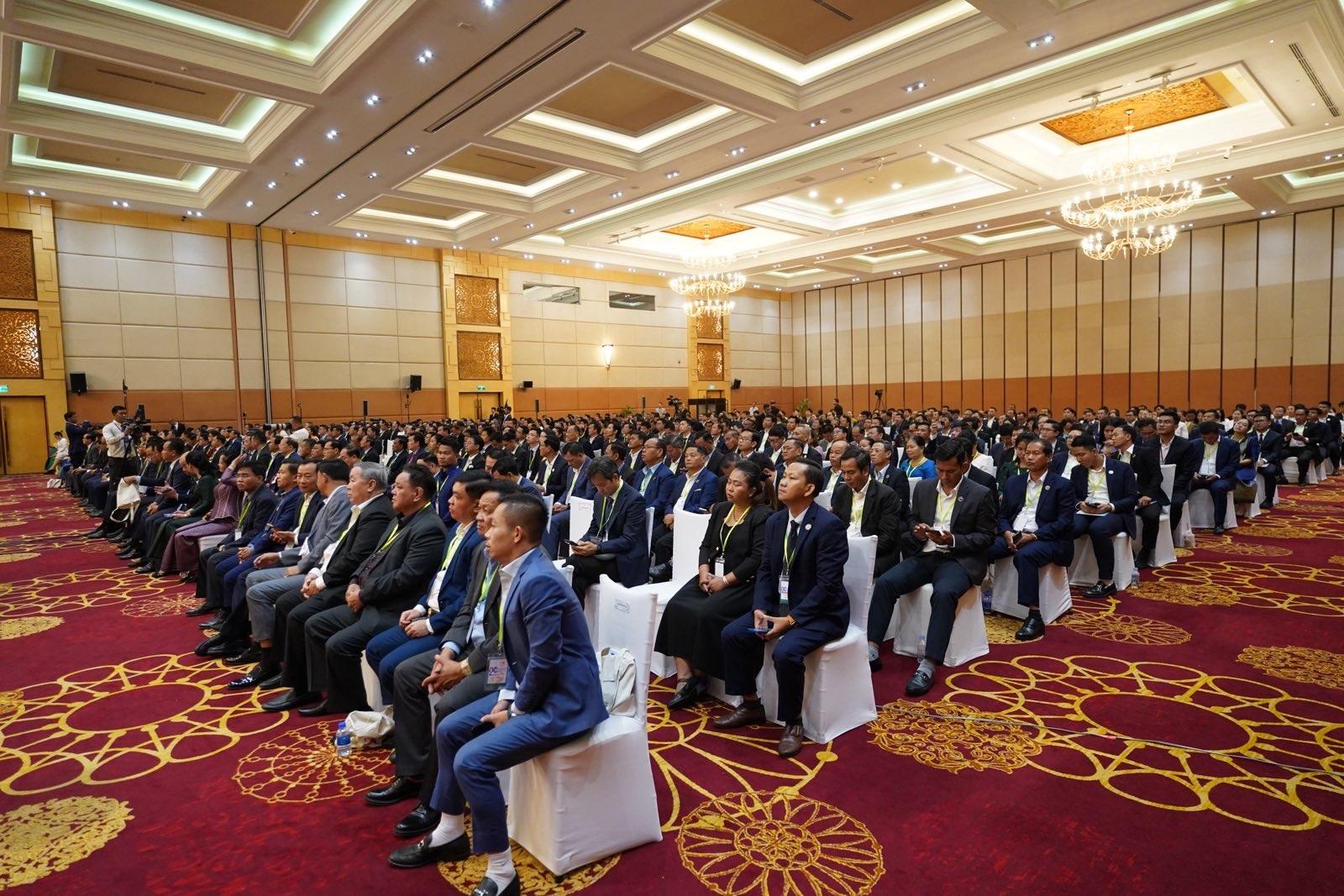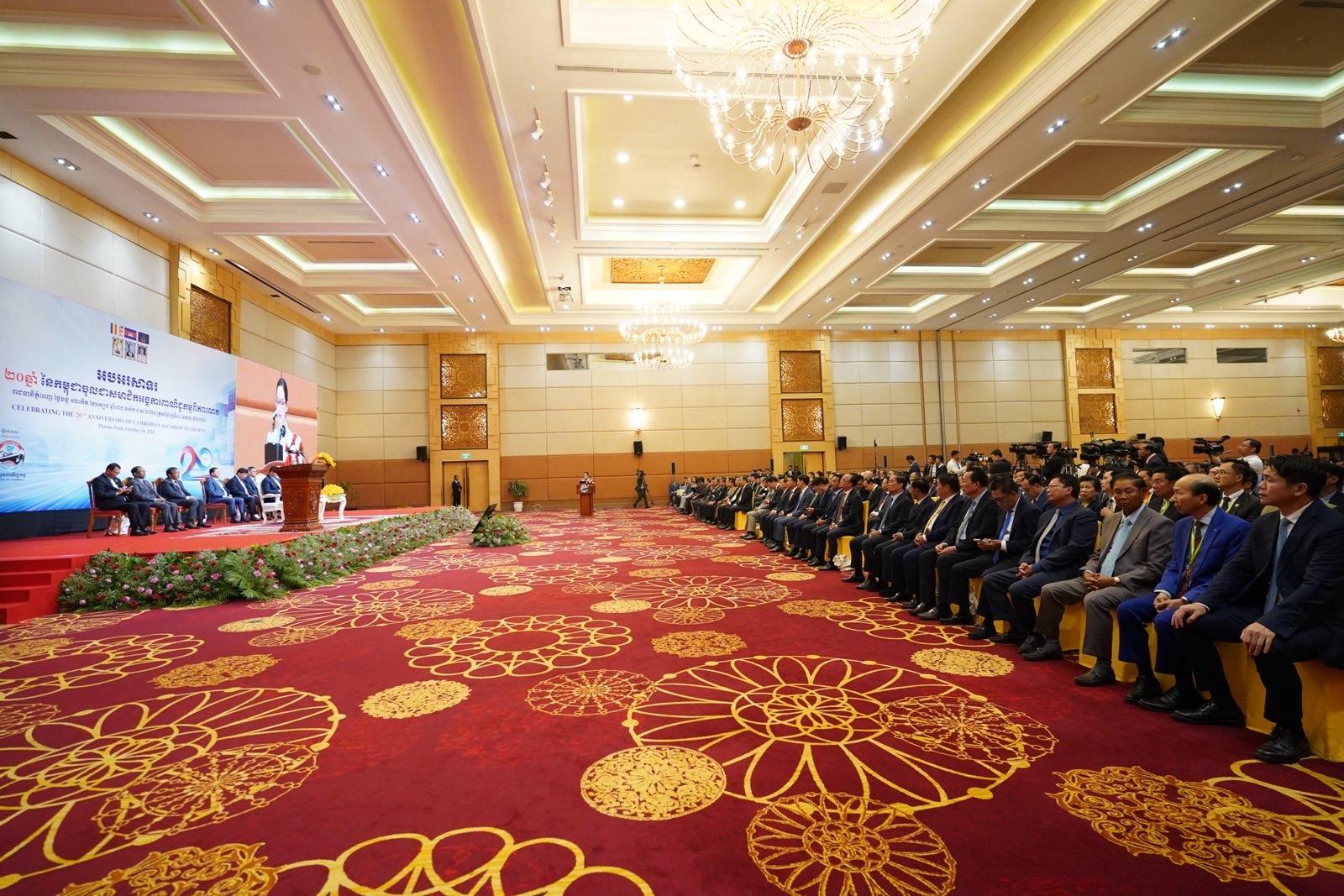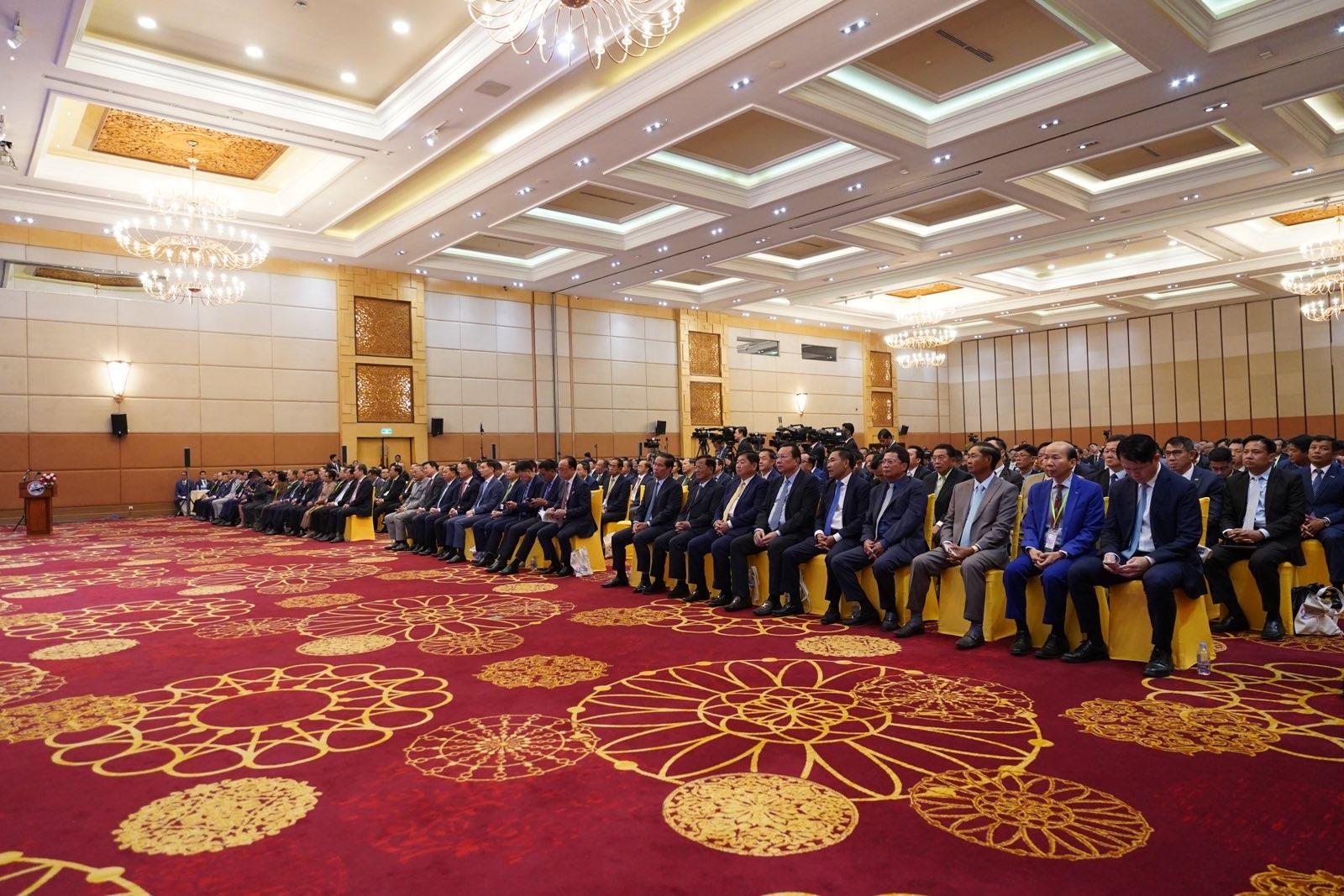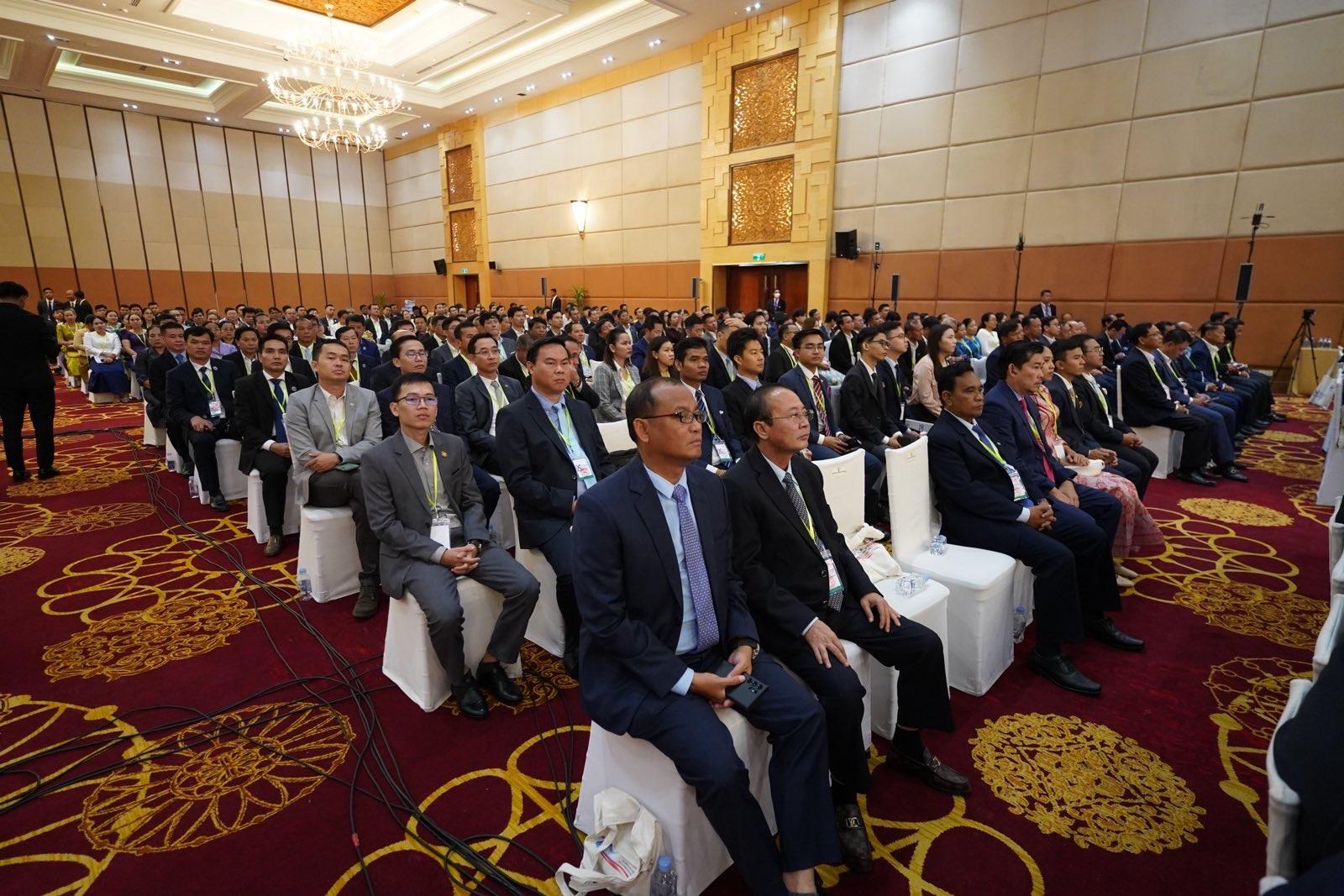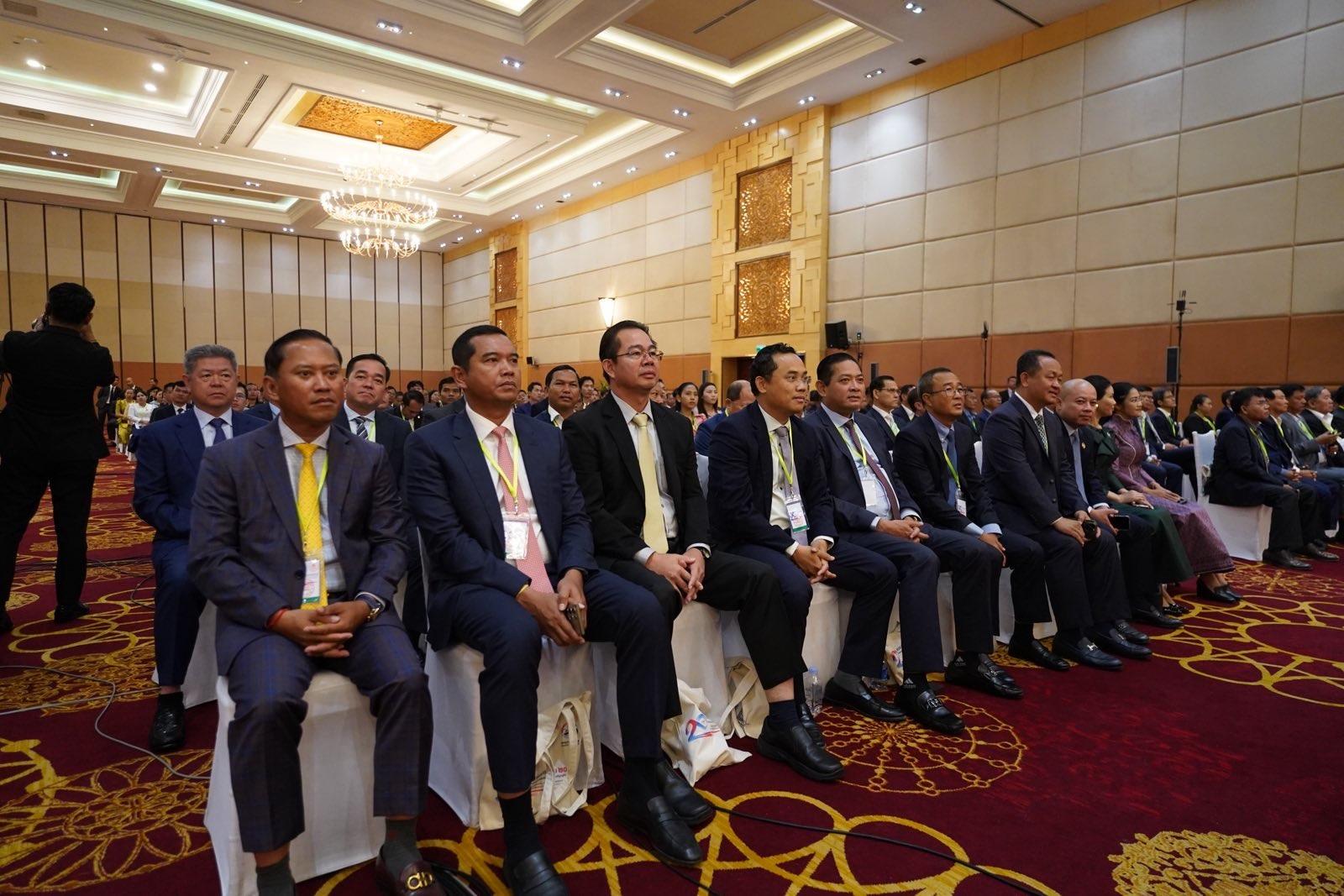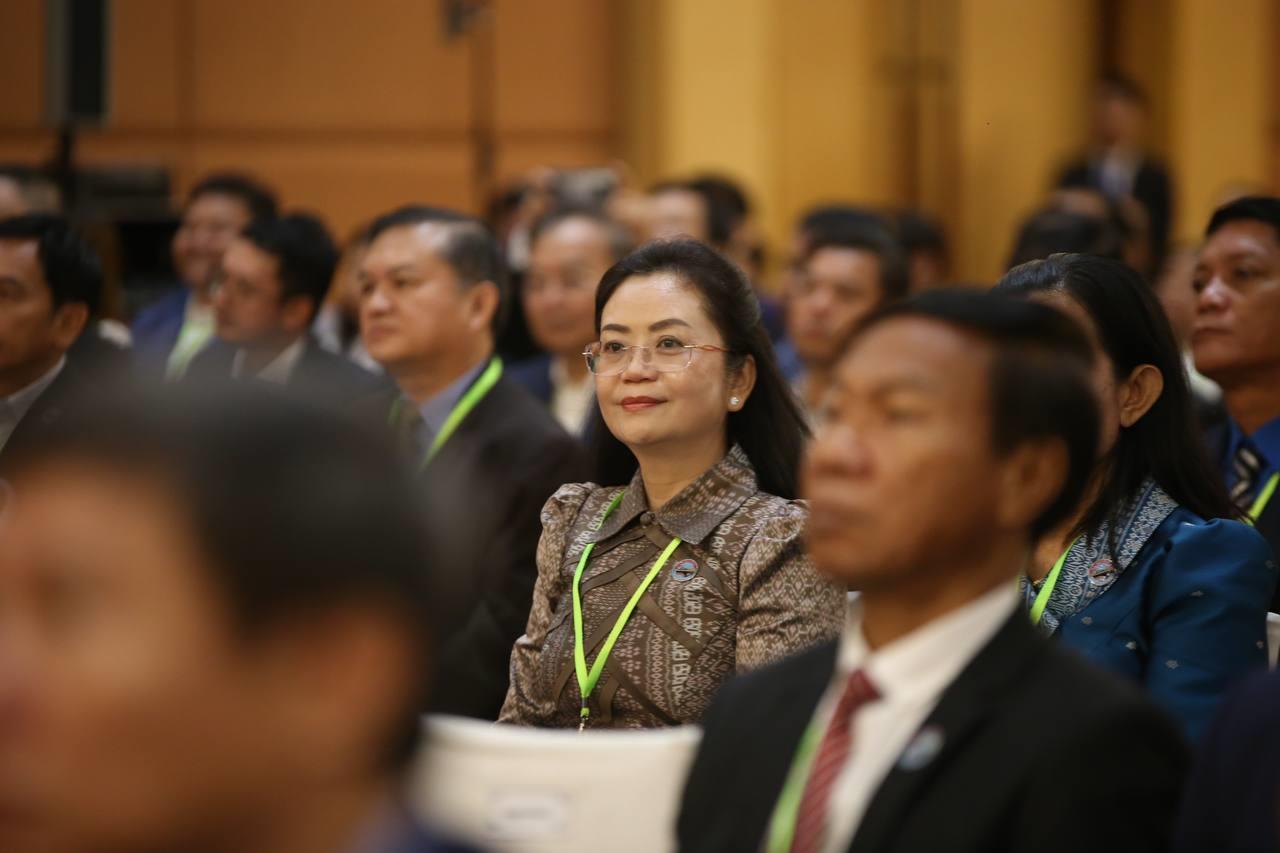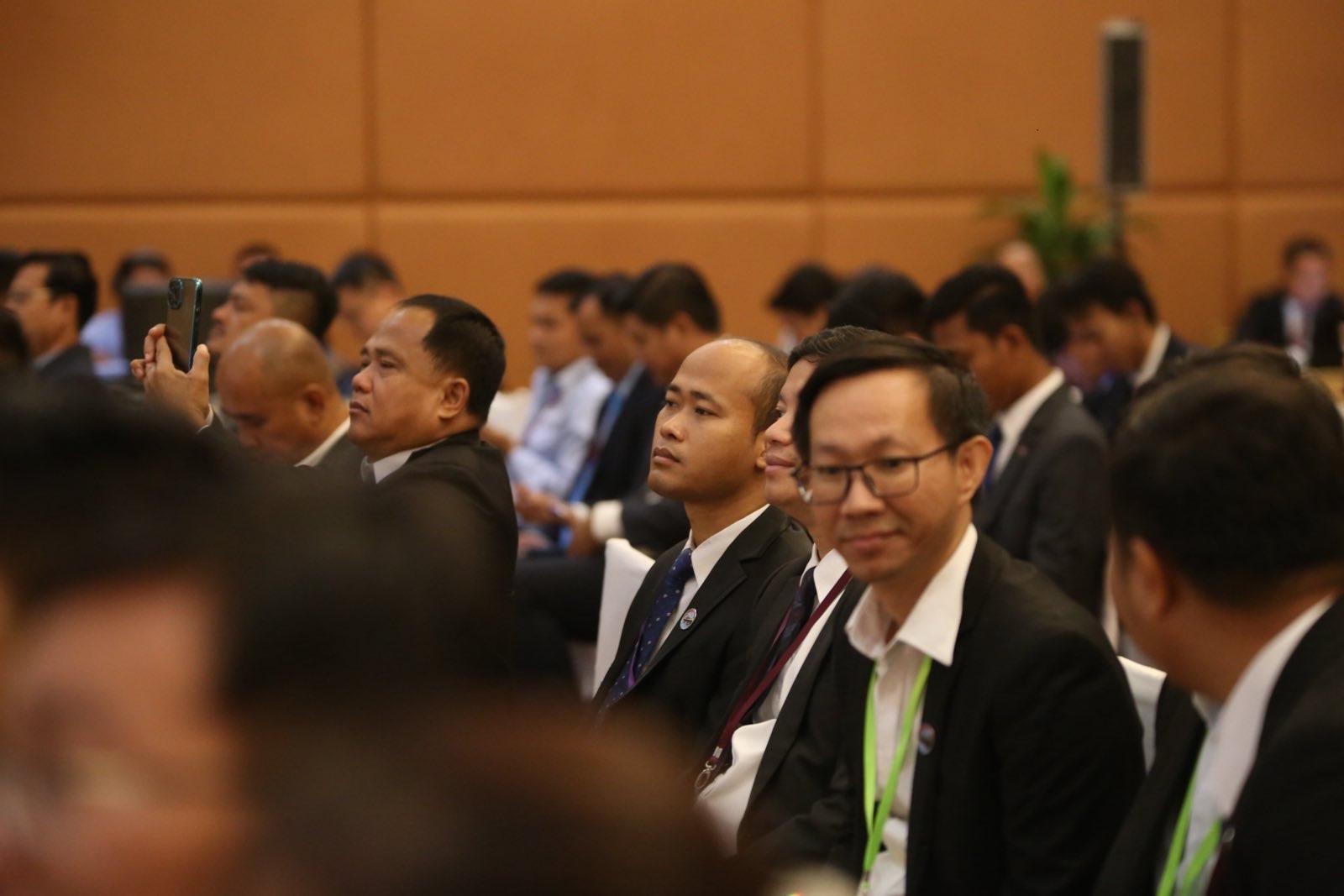Phnom Penh (FN), Oct. 14 – Cambodian Prime Minister Hun Manet outlined five recommendations aimed at promoting economic and trade development to achieve Cambodia’s vision of becoming a high-income country by 2050.
The premier spoke on Monday (Oct. 14) during the 20th anniversary celebration of Cambodia’s accession to the World Trade Organization (WTO) at Sokha Phnom Penh Hotel.
The five recommendations are as follow:
1. To promote the development of key sectors and identify new sources of economic growth, the government aims to diversify exports beyond garments and rice. This includes enhancing travel products, electronics, solar panels, bicycles, and various agricultural products such as rubber, cashew nuts, bananas, and mangoes. Additionally, the Royal Government will continue to provide tax incentives to domestic producers and exporters of rice, corn, soybeans, pepper, cassava, cashew nuts, rubber, Pailin mangoes, aquaculture, livestock, and palm oil products. These initiatives aim to increase production for domestic consumption and boost the export of these products, adding greater value for the benefit of farmers and investors.
2. The implementation of the "Strengthen the Old Market - Expand New Markets" approach is underway. The Royal Government continues to promote the execution of free, bilateral, regional, and multilateral free trade agreements, including those with Cambodia-China, Cambodia-Republic of Korea, Cambodia-UAE, and the Regional Comprehensive Economic Partnership (RCEP). Additionally, the Royal Government has established guidelines for identifying new export markets and potential trading partners by encouraging the formation of more free trade agreements to broaden market access.
3. To attract foreign direct investment in high value-added and green industries, the government is promoting the development of local micro, small, and medium enterprises by strengthening the processing sector and enhancing accessibility to technology transfer, research, and development. Additionally, the government is investing in infrastructure that supports economic growth and trade. Notably, the Royal Government has officially launched the Kampot Multi-Purpose Port and commenced construction of the Funan Techo Canal, which will reduce transportation time, distance, and costs. This project aims to establish a commercial zone and logistics center while developing several new satellite ports.
4. The government is actively implementing policies on digital transformation, digital business, and e-commerce by encouraging businesses to establish technology incubators for both local and cross-border sales. Additionally, the Royal Government is promoting the use of automation systems and technology incubators in the delivery of public services to streamline procedures, reduce time, and lower associated costs. These efforts have significantly enhanced the business environment in Cambodia, fostering business activities aimed at improving quality, transparency, efficiency, and investor trust. This initiative particularly focuses on bringing public services closer to consumers.
5. The Royal Government is developing a strategy to facilitate a smooth graduate from the Least Developed Countries (LDC) category. This strategy aims to mitigate the negative impacts of losing trade preferences and international aid measures, while ensuring sustainable development after graduation by 2029.
=FRESH NEWS
